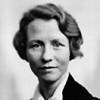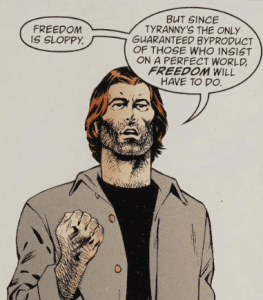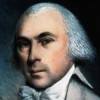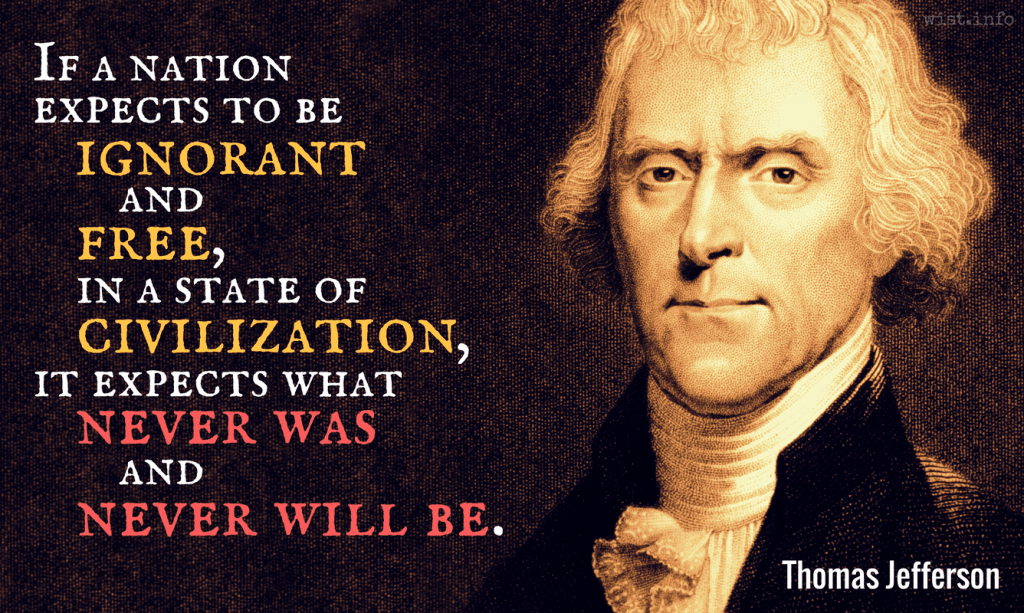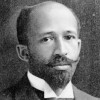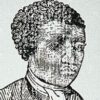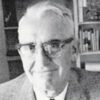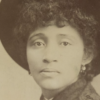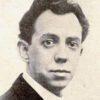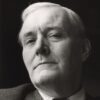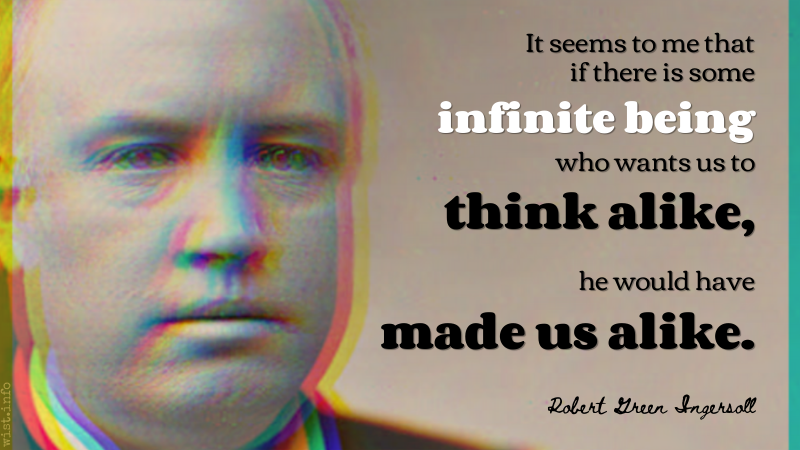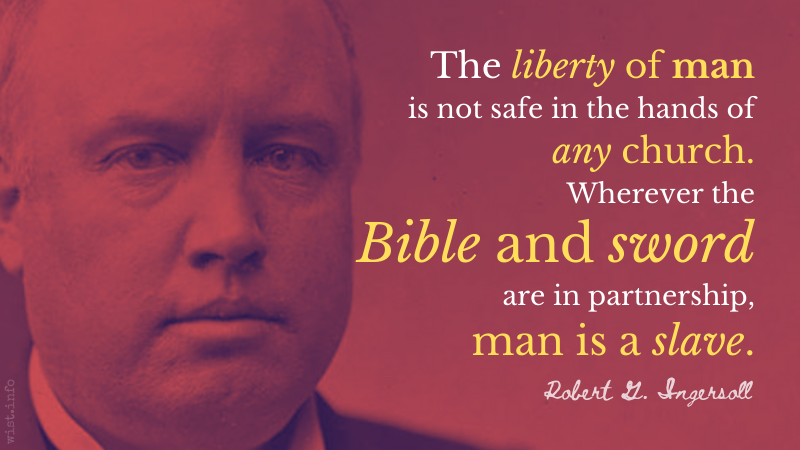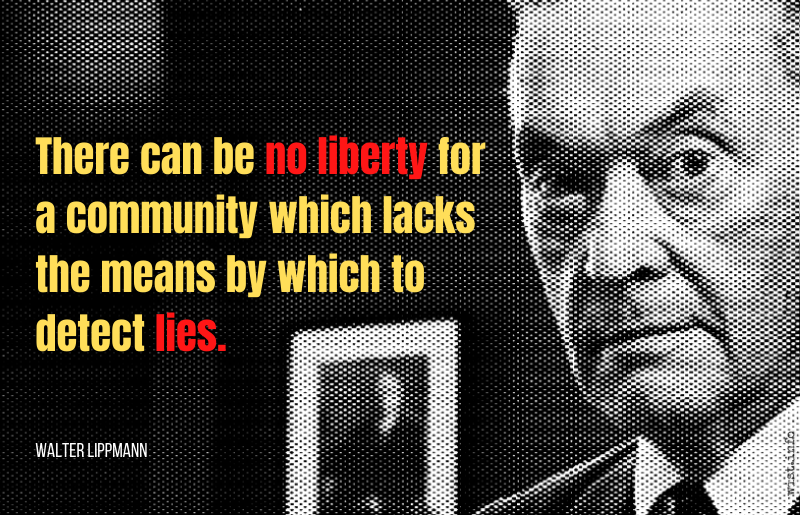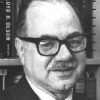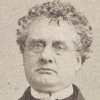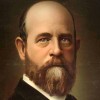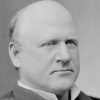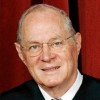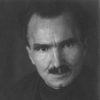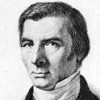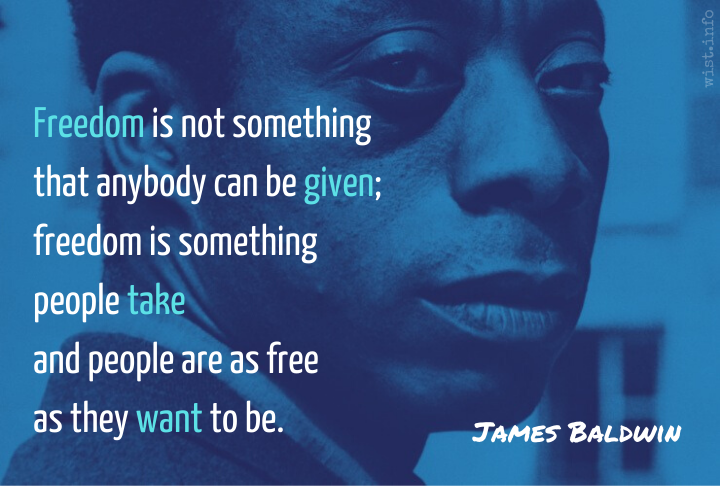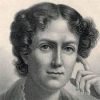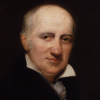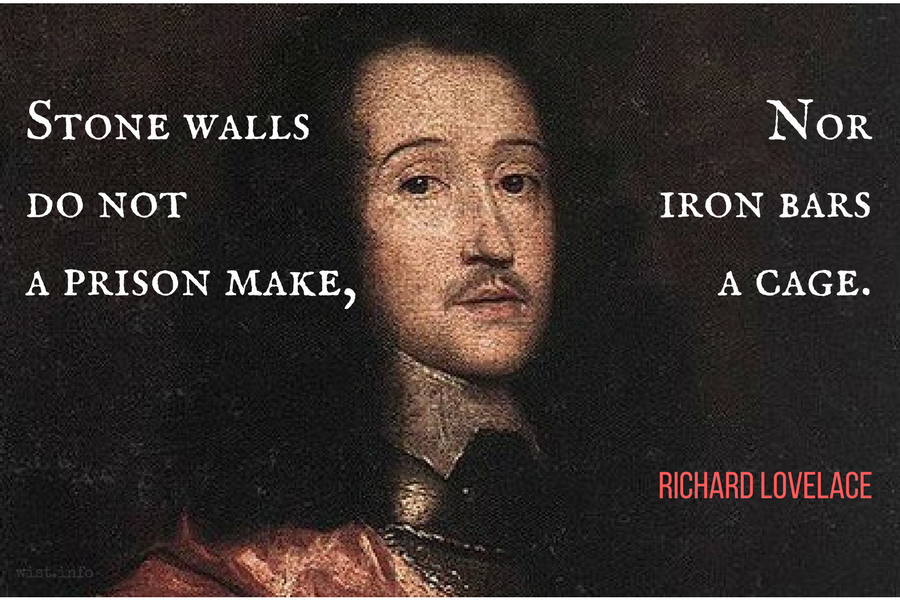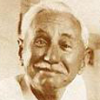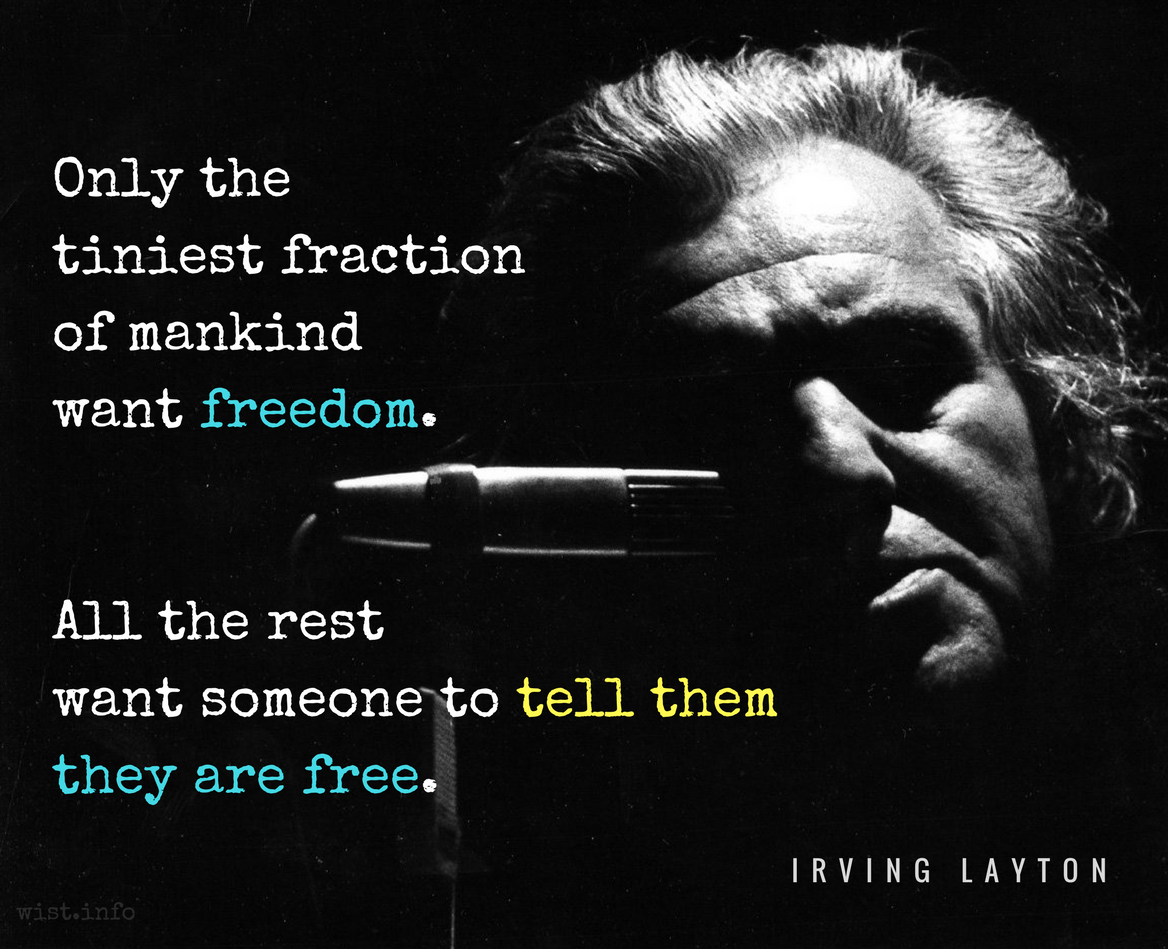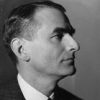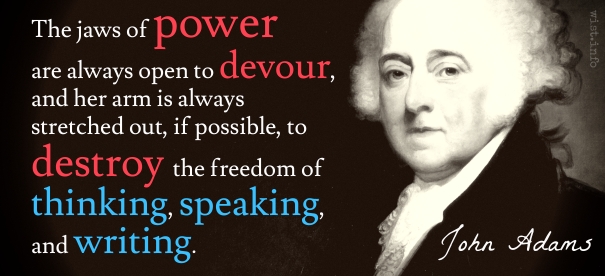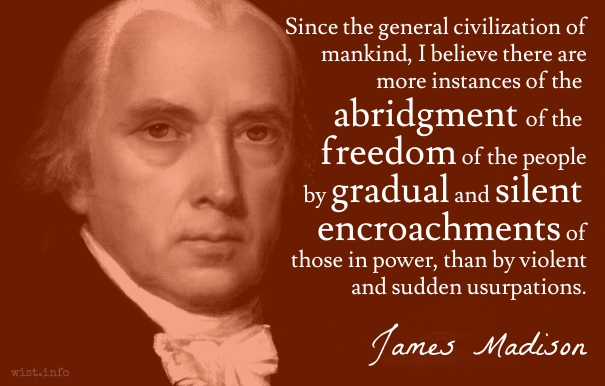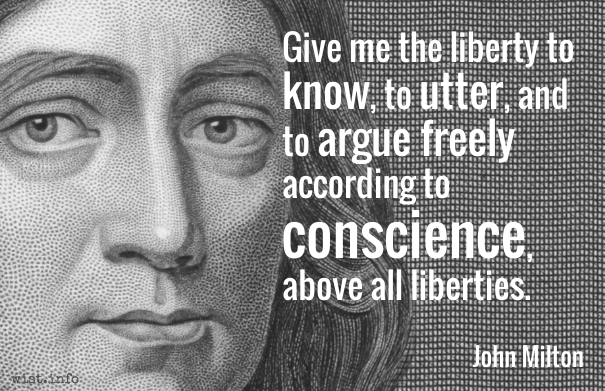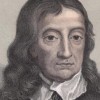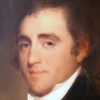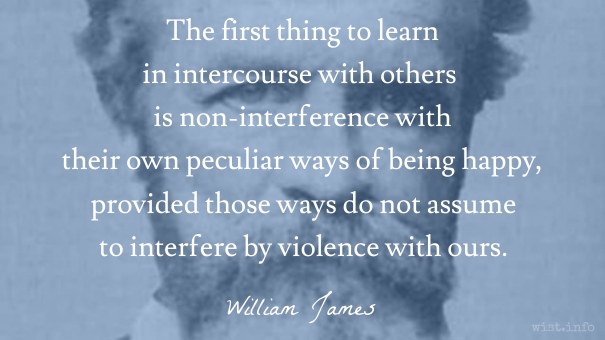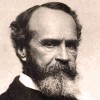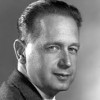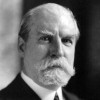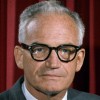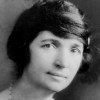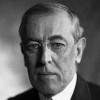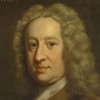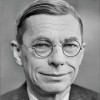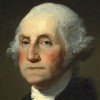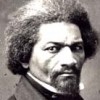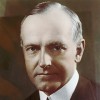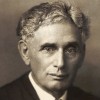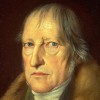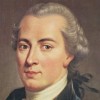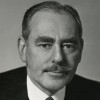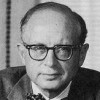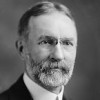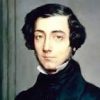To sound off with a cheerful “give me liberty or give me death” sort of argument in the face of the unprecedented and inconceivable potential of destruction in nuclear warfare is not even hollow; it is downright ridiculous. Indeed it seems so obvious that it is a very different thing to risk one’s own life for the life and freedom of one’s country and one’s posterity from risking the very existence of the human species for the same purpose that it is difficult not to suspect the defenders of the “better dead than red” or “better death than slavery” slogans of bad faith.
Which of course is not to say the reverse, “better red than dead,” has any more to recommend itself; when an old truth ceases to be applicable, it does not become any truer by being stood on its head.
As a matter of fact, to the extent that the discussion of the war question today is conducted in these terms, it is easy to detect a mental reservation on both sides. Those who say “better dead than red” actually think: The losses may not be as great as some anticipate, our civilization will survive; while those who say “better red than dead” actually think: Slavery will not be so bad, man will not change his nature, freedom will not vanish from the earth forever. In other words, the bad faith of the discussants lies in that both dodge the preposterous alternative they themselves have proposed; they are not serious.Hannah Arendt (1906-1975) German-American philosopher, political theorist
On Revolution, Introduction (1963)
(Source)
Quotations about:
liberty
Note not all quotations have been tagged, so Search may find additional quotes on this topic.
Liberty will not descend to a people; a people must raise themselves to liberty; it is a blessing that must be earned before it can be enjoyed.
Charles Caleb "C. C." Colton (1780-1832) English cleric, writer, aphorist
Lacon: Or, Many Things in Few Words, Vol. 2, § 178 (1822)
(Source)
Epitaph on Emma Goldman's gravestone in Forest Park, Illinois. Often attributed to her (even under the same book name).
Political freedom in a citizen is the tranquility of mind that comes from the opinion each one has of his security; and for him to have this freedom, the government must be such that one citizen cannot fear another citizen.
[La liberté politique, dans un citoyen, est cette tranquillité d’esprit qui provient de l’opinion que chacun a de sa sûreté: &, pour qu’on ait cette liberté, il faut que le gouvernement soit tel, qu’un citoyen ne puisse pas craindre un autre citoyen.]
Charles-Lewis de Secondat, Baron de Montesquieu (1689-1755) French political philosopher
Spirit of Laws [The Spirit of the Laws; De l’esprit des lois], Book 11, ch. 6 (1748) [tr. Stewart (2018)]
(Source)
(Source (French)). Other translations:The political liberty of the subject is a tranquility of mind, arising from the opinion each person has of his safety. In order to have this liberty, it is requisite the government be so constituted as one man need not be afraid of another.
[tr. Nugent (1750)]Political liberty in a citizen is that tranquility of spirit which comes from the opinion each one has of his security, and in order for him to have this liberty the government must be such that one citizen cannot fear another citizen.
[tr. Cohler/Miller/Stone (1989)]
French: x4
There was a stag, once, who could always defeat a stallion
And drive him out of their pasture — until, tired of losing,
The horse begged help of man, and got a bridle in return.
He beat the stag, all right, and he laughed — but then the rider
Stayed on his back, and the bit stayed in his mouth.
Give up your freedom, more worried about poverty than something
Greater than any sum of gold, and become a slave and stay
A slave forever, unable to live on only enough.[Cervus equum pugna melior communibus herbis
pellebat, donec minor in certamine longo
imploravit opes hominis frenumque recepit;
sed postquam victor violins discessit ab hoste,
non equitem dorso, non frenum depulit ore.
Sic qui pauperiem veritus potiore metallis
libertate caret, dominum vehet improbus atque
serviet aeternum, quia parvo nesciet uti.]Horace (65-8 BC) Roman poet, satirist, soldier, politician [Quintus Horatius Flaccus]
Epistles [Epistularum, Letters], Book 1, ep. 10 “To Aristius Fuscus,” l. 34ff (1.10.34-41) (20 BC) [tr. Raffel (1983)]
(Source)
(Source (Latin)). Other translations:An hart the better chevalier as it came then to passe
Did chase an horse that fed with him from eating of the grasse.
The tryumpher after that he was parted from his foe
The man from backe, the bitt from mouthe he could not rid them fro.
So, he that feareth povertie his fredom cannot houlde.
Fredome, better then mettells all better then choysest goulde.
That foole shall beare in dede a Lorde, and lyve a dayly thrall,
For that he will not knowe to use and lyve upon a small.
[tr. Drant (1567)]The Stagg superior both in Arms and Force,
Out of the Common-Pasture drove the Horse:
Untill the vanquish'd after a long fight
Pray'd Man's assistance, and receiv'd the Bit:
But, having beat the Victor, could not now
Bit from his Mouth, nor Man from his Back throw.
So He that fearing Poverty, hath sold
Away his Liberty; better then Gold,
Shall carry a proud Lord upon his back,
And serve for ever, 'cause he could not lack.
[tr. Fanshawe; ed. Brome (1666)]Both fed together, till with injur'ous force,
The stoutest Deer expell'd the weaker Horse:
He beaten, flyes to Man to right his Cause,
Begs help, and takes the Bridle in his Jaws.
Yet tho He Conquer'd, tho He rul'd the Plain,
He bore the Rider still, and felt the Rein.
Thus the mean Wretch, that fearing to be poor,
Doth sell his Liberty for meaner Ore:
Must bear a Lord, He must be still a Slave,
That cannot use the little Nature gave.
[tr. Creech (1684)]A lordly stag, arm'd with superior force,
Drove from their common field a vanquisht horse,
Who for revenge to man his strength enslav'd,
Took up his rider, and the bitt received:
But, though he conquer'd in the martial strife,
He felt his rider's weight, and champt the bitt for life.
So he, who poverty with horror views,
Nor frugal nature's bounty knows to use;
Who sells his freedom in exchange for gold
(Freedom for mines of wealth too cheaply sold),
Shall make eternal servitude his fate,
And feel a haughty master's galling weight.
[tr. Francis (1747)]It chanced that after many a well-fought bout
The Stag contrived to put the Horse to rout;
'Till, from his pasture driven, the foe thought fit
To ask the aid of man and took the bit.
He conquer'd; but, his triumph o'er, began
To find he could shake off nor bit nor man.
such is the fate of him who, if he please,
Might rest in humble competence and ease,
Yet through the dread of penury has sold
That independence which surpasses gold.
Henceforth he'll serve a tyrant for his pains,
And stand or budge as avarice pulls the reins.
[tr. Howes (1845)]The stag, superior in fight, drove the horse from the common pasture, till the latter, worsted in the long contest, implored the aid of man and received the bridle; but after he had parted an exulting conqueror from his enemy, he could not shake the rider from his back, nor the bit from his mouth. So he who, afraid of poverty, forfeits his liberty, more valuable than mines, avaricious wretch, shall carry a master, and shall eternally be a slave, for not knowing how to use a little.
[tr. Smart/Buckley (1853)]The stag was wont to quarrel with the steed,
Nor let him graze in common on the mead:
The steed, who got the worst in each attack,
Asked help from man, and took him on his back:
But when his foe was quelled, he ne'er got rid
Of his new friend, still bridled and bestrid.
So he who, fearing penury, loses hold
Of independence, better far than gold,
Will toil, a hopeless drudge, till life is spent,
Because he'll never, never learn content.
[tr. Conington (1874)]Once on a time a stag, at antlers' point,
Expelled a horse he'd worsted, from the joint
Enjoyment of the pasture both had cropped:
Still, when he ventured near it, rudely stopped.
The steed called in man's aid, and took the bit:
Thus backed, he charged the stag, and conquered it.
But woe the while! nor rider, bit, nor rein
Could he shake off, and be himself again.
So he who, fearing poverty, hath sold
His freedom, better than uncounted gold.
Will bear a master and a master's laws.
And be a slave unto the end, because
He will not learn, what fits him most to know.
How far, discreetly used, small means will go.
[tr. Martin (1881)]The stag, being the more powerful animal in fight, was accustomed to drive off the horse from the open pasture until the latter, feeling his inferiority, after a protracted contest, implored the help of man, and received the rein. But after that, a revengeful victor, he had left his foe he threw not off the rider from his back nor the bit from his mouth. In a like manner the man who, through a dread of a small income, possesses not freedom -- preferable to metallic treasure -- will, basely, carry a master and yield him perpetual servitude, because he knows not how to enjoy a little.
[tr. Elgood (1893)]The stag could best the horse in fighting and used to drive him from their common pasture, until the loser in the long contest begged the help of man and took the bit. But after that, in overweening triumph, he parted from his foe, he did not dislodge the rider from his back or the bit from his mouth. So he who through fear of poverty forfeits liberty, which is better than mines of wealth, will in his avarice carry a master, and be a slave for ever, not knowing how to live on little.
[tr. Fairclough (Loeb) (1926)]The stag, victorious in fight, in course
Drove from the common pasturage the horse,
Until the horse, at last forced to submit,
Called in the help of man and took the bit;
But, when he had subdued his foe by force,
The rider from his back he couldn't divorce,
Nor from his mouth the bit. So, if in dread
Of Want, wone has one's freedom forfeited --
Freedom more precious than a mine outspread --
A master he will carry for his greed,
And always be a slave, because in deed
He knows not how to make a little do.
[tr. A. F. Murison (1931); ed. Kraemer, Jr (1936)]The stag, in time past, could drive
The horse from the feeding ground, and beat him in fighting,
Until the perpetual loser came crying to man
To ask for his help, and accepted the bit. Then the horse
Fought the stag once again to a bitter conclusion, and won.
He walked off and left his foe, but now couldn’t shake
The bit from his mouth or the rider down from his back.
So one who, fearing poverty, loses the liberty
That is worth even more than a gold mine will carry a master,
And cravenly slave for another, simply because
He can't subsist on a little.
[tr. Palmer Bovie (1959)]A stag battled a horse for the best grass in a field
And kept on winning until the loser in that long war
approached a man to beg his help, and took the bit.
But when it had won the bloody clash and routed its foe,
it could neither shake out the bit nor shake off the rider.
Anyone so scared of poverty he'd rather lose his freedom
than his mines is such a fool he bears a rider, a master
he'll obey forever, since he never learned to live on little.
[tr. Fuchs (1977)]The stag was a better fighter than the horse
And often drove him out of their common pasture,
Until the horse, the loser, asked man's help
And acquiesced in taking the bit in his mouth.
But after his famous victory in this battle
He couldn't get the rider off his back
And he couldn't get the bit out of his mouth.
The man who'se afraid to be poor and therefore gives
His liberty away, worth more than gold,
Will carry a master on his back and be
A slave forever, not knowing how to live
On just a little.
[tr. Ferry (2001)]The stag, being stronger than the horse, drove him away from the pasture
they shared, until, having had the worse of the age-old struggle,
the horse turned for help to man, and accept the bit.
But after routing his enemy and leaving the field in triumph
he never dislodged the rider from his back or the bit from his mouth.
So the man who, in fear of poverty, forgoes his independence
(a thing more precious than metals) has the shame of carrying a master;
he's a slave for life, as he will not make the best of a little.
[tr. Rudd (2005 ed.)]The stag could always better the horse in conflict,
And drive him from open ground, until the loser
In that long contest, begging man’s help, took the bit:
Yet, disengaged from his enemy, as clear victor,
He couldn’t shed man from his back, the bit from his mouth.
So the perverse man who forgoes his freedom, worth more
Than gold, through fear of poverty, suffers a master
And is a slave forever, by failing to make much
Of little.
[tr. Kline (2015)]
Soar, eat ether, see what has never been seen; depart, be lost,
But climb.Edna St. Vincent Millay (1892-1950) American poet
Poem (1934), “On Thought in Harness,” Wine from These Grapes, Part 4 (1934)
(Source)
In a self-governing country the people are called citizens. Under a despotism or autocracy the people are called subjects. This is because in a free country the people are themselves sovereign, while in a despotic country the people are under a sovereign. In the United States the people are all citizens, including its President. The rest of them are fellow citizens of the President. In Germany the people are all subjects of the Kaiser. They are not his fellow citizens, they are his subjects.
This is the essential difference between the United States and Germany, but the difference would vanish if we now submitted to the foolish or traitorous persons who endeavor to make it a crime to tell the truth about the Administration when the Administration is guilty of incompetence or other shortcomings. Such an endeavor is itself a crime against the nation. Those who take such an attitude are guilty of moral treason of a kind both abject and dangerous.Theodore Roosevelt (1858-1919) American politician, statesman, conservationist, writer, US President (1901-1909)
Essay (1918-04-06), “Citizens or Subjects?” Kansas City Star
(Source)
Regarding a bill which had just passed the Senate Judiciary Committee which would fine and imprison any one who used "contemptuous or slurring language about the President."
This passage was added to later editions of his essay, "Lincoln and Free Speech,", as printed in The Works of Theodore Roosevelt, vol. 21, The Great Adventure, ch. 7 (1925). It does not appear in the original version of the essay or book.
So glorious is the recovery of liberty that in regaining liberty we must not shrink even from death.
[Ita praeclara est recuperatio libertatis ut ne mors quidem sit in repetenda libertate fugienda.]
Marcus Tullius Cicero (106-43 BC) Roman orator, statesman, philosopher
Philippics [Philippicae; Antonian Orations], No. 10, ch. 9 / sec. 20 (10.9/10.20) (43-02 BC) [tr. Ker (Loeb) (1926)]
(Source)
(Source (Latin)). Other translations:The recovery of freedom is so splendid a thing that we must not shun even death when seeking to recover it.
[tr. Yonge (1903)]So glorious is the reclamation of freedom that not even death should be avoided when freedom must be regained.
[tr. @sentantiq (2017)]
The film industry is a great industry, with infinite possibilities for good and bad. Its primary purpose is to entertain people. On the side, it can do many other things. It can popularize certain ideals, it can make education palatable. But in the long run, the judge who decides whether what it does is good or bad is the man or woman who attends the movies. In a democratic country I do not think the public will tolerate a removal of its right to decide what it thinks of the ideas and performances of those who make the movie industry work.
Eleanor Roosevelt (1884-1962) First Lady of the US (1933-45), politician, diplomat, activist
Column (1947-10-29), “My Day”
(Source)
On the House Un-American Activities Committee and Hollywood blacklisting.
BIGBY: Freedom is sloppy. But since tyranny’s the only guaranteed byproduct of those who insist on a perfect world, freedom will have to do.
Bill Willingham (b. 1956) American writer and comics artist
Fables: Werewolves of the Heartland, ch. 9 (2012)
(Source)
Art by Jim Fern.
What juster reason is there for the waging of war than to repel slavery? a condition in which, though your master may not be oppressive, yet it is a wretched thing he should have the power to be so if he will.
[Quae causa iustior est belli gerendi quam servitutis depulsio? in qua etiamsi not sit molestus dominus, tamen est miserrimum posse, se velit.]
Marcus Tullius Cicero (106-43 BC) Roman orator, statesman, philosopher
Philippics [Philippicae; Antonian Orations], No. 8, ch. 4 / sec. 12 (8.4/8.12) (43-02-03 BC) [tr. Ker (Loeb) (1926)]
(Source)
(Source (Latin)). Other translations:What juster cause is there for waging war than the wish to repel slavery? in which, even if one's master be not tyrannical, yet it is a most miserable thing that he should be able to be so if he chooses.
[tr. Yonge (1903)]Is there any better reason for waging war than to ward off slavery? In slavery, even if the master is not oppressive, the sorry thing still is that he can be if he wishes.
[tr. Manuwald (2007)]What cause for war is more just than the repulsion of slavery? even under a benign master, it is miserable that he has the power, if he wants to use it.
[tr. Wiseman]
America! America!
God mend thine ev’ry flaw,
Confirm thy soul in self-control,
Thy liberty in law.Katharine Lee Bates (1859-1929) American writer and poet
Poem (1893), “America,” st. 2 (1904 ed.)
(Source)
This text was introduced in Bates' 1904 version of the song. It was not in the original version published in The Congregationalist, Vol. 80, No. 27 (1895-07-04); the end of stanza 2 originally ended:America! America!
God shed his grace on thee
Till paths be wrought through wilds of thought
By pilgrim foot and knee!
For more information on the history of this poem and song, see America the Beautiful - Wikipedia.
Liberty is often a heavy burden on a man. It involves that necessity for perpetual choice which is the kind of labor men have always dreaded. In common life we shirk it by forming habits, which take the place of self-determination. In politics party-organization saves us the pains of much thinking before deciding how to cast our vote. In religious matters there are great multitudes watching us perpetually, each propagandist ready with his bundle of finalities, which having accepted we may be at peace. The more absolute the submission demanded, the stronger the temptation becomes to those who have been long tossed among doubts and conflicts.
Oliver Wendell Holmes, Sr. (1809-1894) American poet, essayist, scholar
Article (1860-09), “The Professor’s Story [Elsie Venner],” ch. 18, Atlantic Monthly, Vol. 6, No. 35
(Source)
Originally serialized as “The Professor’s Story,” but collected as the novel Elsie Venner, ch. 18 (1861).
I thank Luther for protesting against the abuses of the church, and I denounce him because he was the enemy of liberty. I thank Calvin for writing a book in favor of religious freedom, and I abhor him because he burned Servetus. I thank Knox for resisting Episcopal persecution, and I hate him because he persecuted in his turn. I thank the Puritans for saying “Resistance to tyrants is obedience to God,” and yet I am compelled to say that they were tyrants themselves.
Familiarize yourselves with the chains of bondage, and you are preparing your own limbs to wear them. Accustomed to trample on the rights of those around you, you have lost the genius of your own independence, and become the fit subjects of the first cunning tyrant who rises.
Abraham Lincoln (1809-1865) American lawyer, politician, US President (1861-65)
Speech (1858-09-11), Edwardsville, Illinois
(Source)
As reported in the Alton Weekly Courier (1858-09-16).
Nothing is more detestable than disgrace, nothing more shameful than slavery. We have been born for glory and freedom — let us either hold on to these things or die with dignity.
[Nihil est detestabilius dedecore, nihil foedius servitute. Ad decus et ad libertatem nati sumus; aut haec teneamus aut cum dignitate moriamur.]
Marcus Tullius Cicero (106-43 BC) Roman orator, statesman, philosopher
Philippics [Philippicae; Antonian Orations], No. 3, ch. 14 / sec. 36 (3.14/3.36) (44-12-20 BC) [tr. @sentantiq (2019)]
(Source)
(Source (Latin)). Other translations:Nothing is more detestable than disgrace, nothing fouler than servitude. It is to glory and to liberty we were born; let us either hold fast to these or die with dignity.
[tr. Yonge (1903)]There is nothing more detestable than disgrace; nothing more shameful than slavery. We have been born to glory and to liberty; let us either preserve them or die with dignity.
[tr. Ker (Loeb) (1926)]Nothing is more abominable than disgrace, nothing is uglier than slavery. We were born for honor and freedom: let us either retain them or die with dignity.
[tr. Manuwald (2007)]
It has been observed, that they who most loudly clamour for liberty do not most liberally grant it. What we know of Milton’s character, in domestic relations, is, that he was severe and arbitrary. His family consisted of women; and there appears in his books something like a Turkish contempt of females, as subordinate and inferior beings. That his own daughters might not break the ranks, he suffered them to be depressed by a mean and penurious education. He thought woman made only for obedience, and man only for rebellion.
Samuel Johnson (1709-1784) English writer, lexicographer, critic
Lives of the Most Eminent English Poets, “Milton” (1781)
(Source)
Also known as Lives of English Poets and Lives of the Poets.
We see, by the Sketches I have given you, that all the great Kingdoms of Europe have once been free. But that they have lost their Liberties, by the Ignorance, the Weakness, the Inconstancy, and Disunion of the People. Let Us guard against these dangers, let us be firm and stable, as wise as Serpents and as harmless as Doves, but as daring and intrepid as Heroes.
John Adams (1735-1826) American lawyer, Founding Father, statesman, US President (1797-1801)
Diary (1772, Spring), “Notes for a Oration at Braintree”
(Source)
The serpents/doves reference is from the New Testament, Matthew 10:16.
We have to call it “freedom”: who’d die for “a lesser tyranny”?
Mignon McLaughlin (1913-1983) American journalist and author
The Neurotic’s Notebook, ch. 7 (1963)
(Source)
Liberty, under every conceivable Form of Government is always in Danger. It is so even under a simple, or perfect Democracy, more so under a mixed Government, like the Republic of Rome, and still more so under a limited Monarchy.
John Adams (1735-1826) American lawyer, Founding Father, statesman, US President (1797-1801)
Diary (1772, Spring), “Notes for a Oration at Braintree”
(Source)
To Paine, Jefferson, and Franklin, are we indebted, more than to all others, for a human government, and for a Constitution in which no God is recognized superior to the legally expressed will of the people.
They knew that to put God in the Constitution was to put man out. They knew that the recognition of a Deity would be seized upon by fanatics and zealots as a pretext for destroying the liberty of thought. They knew the terrible history of the church too well to place in her keeping, or in the keeping of her God, the sacred rights of man. They intended that all should have the right to worship, or not to worship; that our laws should make no distinction on account of creed. They intended to found and frame a government for man, and for man alone. They wished to preserve the individuality and liberty of all; to prevent the few from governing the many, and the many from persecuting and destroying the few.Robert Green Ingersoll (1833-1899) American lawyer, agnostic, orator
Lecture (1873-12) “Individuality,” Chicago Free Religious Society
(Source)
Full title "Arraignment of the Church and a Plea for Individuality." Collected in The Gods and Other Lectures (1876).
My declarations upon this subject of negro slavery may be misrepresented, but cannot be misunderstood. I have said that I do not understand the Declaration to mean that all men were created equal in all respects. They are not our equal in color; but I suppose that it does mean to declare that all men are equal in some respects; they are equal in their right to “life, liberty, and the pursuit of happiness.” Certainly the negro is not our equal in color, perhaps not in many other respects; still, in the right to put into his mouth the bread that his own hands have earned, he is the equal of every other man, white or black. In pointing out that more has been given you, you cannot be justified in taking away the little which has been given him. All I ask for the negro is that if you do not like him, let him alone. If God gave him but little, that little let him enjoy.
Abraham Lincoln (1809-1865) American lawyer, politician, US President (1861-65)
Speech (1858-07-17), Springfield, Illinois
(Source)
The greatest crimes in the world are not committed by people breaking the rules but by people following the rules. It’s people who follow orders that drop bombs and massacre villages. As a precaution to never committing major acts of evil it is our solemn duty never to do what we’re told, this is the only way we can be sure.
Banksy (b. 1974?) England-based pseudonymous street artist, political activist, film director
Wall and Piece, “Cops” (2005)
(Source)
Learned Institutions ought to be favorite objects with every free people. They throw that light over the public mind which is the best security against crafty & dangerous encroachments on the public liberty.
James Madison (1751-1836) American statesman, political theorist, US President (1809-17)
Letter (1822-08-04) to William T. Barry
(Source)
These words are one of the Madison quotes inscribed in the Madison Memorial Hall, Library of Congress, James Madison Memorial Building.
If a nation expects to be ignorant and free, in a state of civilization, it expects what never was and never will be. The functionaries of every government have propensities to command at will the liberty and property of their constituents. There is no safe deposit for these but with the people themselves; nor can they be safe with them without information. Where the press is free, and every man able to read, all is safe.
Thomas Jefferson (1743-1826) American political philosopher, polymath, statesman, US President (1801-09)
Letter (1816-01-06) to Charles Yancey
(Source)
The original, non-orthographic version of this reads:if a nation expects to be ignorant & free, in a state of civilisation, it expects what never was & never will be. the functionaries of every government have propensities to command at will the liberty & property of their constituents. there is no safe deposit for these but with the people themselves; nor can they be safe with them without information. where the press is free and every man able to read, all is safe.
There is a spurious variant on part of this quotation that reads:If a nation expects to be ignorant and free, in a state of civilization, it expects what never was and never will be. If we are to guard against ignorance and remain free, it is the responsibility of every American to be informed.
While the first sentence (as above) is legitimate, the second is not. It appears to be a paraphrase of Jefferson used by Ronald Reagan in 1981.
We said there warn’t no home like a raft, after all. Other places do seem so cramped up and smothery, but a raft don’t. You feel mighty free and easy and comfortable on a raft.
Mark Twain (1835-1910) American writer [pseud. of Samuel Clemens]
The Adventures of Huckleberry Finn, ch. 18 (1884)
(Source)
Four score and seven years ago our fathers brought forth on this continent, a new nation, conceived in Liberty, and dedicated to the proposition that all men are created equal. Now we are engaged in a great civil war, testing whether that nation, or any nation so conceived and so dedicated, can long endure.
Abraham Lincoln (1809-1865) American lawyer, politician, US President (1861-65)
Speech (1863-11-19), “Dedication of the National Cemetery at Gettysburg [Gettysburg Address],” Pennsylvania
(Source)
The law will never make men free; it is men who have got to make the law free. They are the lovers of law and order, who observe the law when the government breaks it.
Henry David Thoreau (1817-1862) American philosopher and writer
Speech (1854-07-04), “Slavery in Massachusetts,” Anti-Slavery Celebration, Framingham, Massachusetts
(Source)
After the conviction in Boston of Anthony Burns, under the Fugitive Slave Act of 1850. This led to large protests and an abolitionist riot at the Boston Courthouse, requiring Federal troops and state militia to ensure Burns' transport to a ship sailing to Virginia.
In context, Thoreau is arguing the quality of a higher law, higher than the Fugitive Slave Law or Constitutional legalism from the courts -- the "law of humanity," which condemns the injustice of slavery.
The liberty we obtain by being members of civilized society, would be licentiousness, if it allowed us to harm others, and slavery, if it prevented us from benefiting ourselves. True liberty, therefore, allows each individual to do all the good he can to himself, without injuring his neighbor.
Charles Caleb "C. C." Colton (1780-1832) English cleric, writer, aphorist
Lacon: Or, Many Things in Few Words, Vol. 1, § 226 (1820)
(Source)
What we want to-day is what our fathers wrote down. They did not attain to their ideal; we approach it nearer, but have not reached it yet. We want, not only the independence of a State, not only the independence of a nation, but something far more glorious — the absolute independence of the individual. That is what we want. I want it so that I, one of the children of Nature, can stand on an equality with the rest; that I can say this is my air, my sunshine, my earth, and I have a right to live, and hope, and aspire, and labor, and enjoy the fruit of that labor, as much as any individual or any nation on the face of the globe.
Robert Green Ingersoll (1833-1899) American lawyer, agnostic, orator
Speech (1876-07-04), “Centennial Oration [The Declaration of Independence],” Peoria, Illinois
(Source)
Seven long years of war — fighting for what? For the principle that all men are created equal — a truth that nobody ever disputed except a scoundrel; nobody, nobody in the entire history of this world. No man ever denied that truth who was not a rascal, and at heart a thief; never, never, and never will. What else were they fighting for? Simply that in America every man should have a right to life, liberty, and the pursuit of happiness. Nobody ever denied that except a villain; never, never. It has been denied by kings — they were thieves. It has been denied by statesmen — they were liars. It has been denied by priests, by clergymen, by cardinals, by bishops, and by popes — they were hypocrites.
Robert Green Ingersoll (1833-1899) American lawyer, agnostic, orator
Speech (1876-07-04), “Centennial Oration [The Declaration of Independence],” Peoria, Illinois
(Source)
So our fathers said: “We will form a secular government, and under the flag with which we are going to enrich the air, we will allow every man to worship God as he thinks best.” They said: “Religion is an individual thing between each man and his creator, and he can worship as he pleases and as he desires.” And why did they do this? The history of the world warned them that the liberty of man was not safe in the clutch and grasp of any church. They had read of and seen the thumbscrews, the racks, and the dungeons of the Inquisition. They knew all about the hypocrisy of the olden time. They knew that the church had stood side by side with the throne; that the high priests were hypocrites, and that the kings were robbers. They also knew that if they gave power to any church, it would corrupt the best church in the world. And so they said that power must not reside in a church, or in a sect, but power must be wherever humanity is — in the great body of the people.
Robert Green Ingersoll (1833-1899) American lawyer, agnostic, orator
Speech (1876-07-04), “Centennial Oration [The Declaration of Independence],” Peoria, Illinois
(Source)
Not only should there be complete liberty in matters of religion and opinion, but complete liberty for each man to lead his life as he desires, provided only that in so doing he does not wrong his neighbors.
Theodore Roosevelt (1858-1919) American politician, statesman, conservationist, writer, US President (1901-1909)
Speech (1910-04-23), “Citizenship in a Republic [The Man in the Arena],” Sorbonne, Paris
(Source)
LIBERTY, n. One of Imagination’s most precious possessions.
Ambrose Bierce (1842-1914?) American writer and journalist
“Liberty,” The Cynic’s Word Book (1906)
(Source)
Included in The Devil's Dictionary (1911). Originally published in the "Devil's Dictionary" column in the San Francisco Wasp (1886-08-14).
They call for freedom and then they attack the courts which protect that freedom.
They call for freedom and they would strip away the rights of those accused of crime, rights developed over centuries to protect against arbitrary power.
They call for freedom and yet accuse their opponents of being soft on communism or even worse, branding as heretics or traitors all those who ever disagree with them.
They call for freedom and they attack our religious leaders for trying to exercise their ancient responsibility — as clergymen and citizens — to guide people in the course of life.
But worst of all, they call for freedom and yet they help create the atmosphere of hate and fear and suspicion in which individual liberty faces its maximum danger.Lyndon B. Johnson (1908-1973) American politician, educator, US President (1963-69)
Speech (1964-10-31), Presidential Campaign, Madison Square Garden, New York City
(Source)
On the Republican Goldwater/Miller ticket and their supporters during the 1964 elections.
Hee that marries for wealth sells his liberty.
George Herbert (1593-1633) Welsh priest, orator, poet.
Jacula Prudentum, or Outlandish Proverbs, Sentences, &c. (compiler), # 784 (1640 ed.)
(Source)
In England such concepts as justice, liberty and objective truth are still believed in. They may be illusions, but they are very powerful illusions.
George Orwell (1903-1950) English writer [pseud. of Eric Arthur Blair]
The Lion and the Unicorn: Socialism and the English Genius, Part 1 “England Your England,” sec. 2 (1941)
(Source)
This college, therefore, from its earliest beginnings, has recognized and its graduates have recognized, that the purpose of education is not merely to advance the economic self-interest of its graduates. The people of California, as much if not more than the people of any other State, have supported their colleges and universities and their schools because they recognize how important it is to the maintenance of a free society that its citizens be well educated.
John F. Kennedy (1917-1963) American politician, author, journalist, US President (1961–63)
Speech (1962-03-23), University of California, Berkeley
(Source)
The purpose of protecting the life of our Nation and preserving the liberty of our citizens is to pursue the happiness of our people. Our success in that pursuit is the test of our success as a Nation.
Of all creation’s bounty realized,
God’s greatest gift, the gift in which mankind
is most like Him, the gift by Him most prized,
is the freedom he bestowed upon the will.
All his intelligent creatures, and they alone,
were so endowed, and so endowed are still.[Lo maggior don che Dio per sua larghezza
fesse creando, e a la sua bontate
più conformato, e quel ch’e’ più apprezza,
fu de la volontà la libertate;
di che le creature intelligenti,
e tutte e sole, fuore e son dotate.]Dante Alighieri (1265-1321) Italian poet
The Divine Comedy [Divina Commedia], Book 3 “Paradiso,” Canto 5, l. 19ff (5.19-24) [Beatrice] (1320) [tr. Ciardi (1970)]
(Source)
(Source (Italian)). Alternate translations:That gem above all price by wifdom giv'n.
The most distinguish'd boon of fav'ring Heav'n,
The Stamp of Godhead on the human breast,
By him most priz'd, is Liberty of Choice;
A gift by none beneath the ambient Skies
But happy rationals alone possest.
[tr. Boyd (1802), st. 5]Supreme of gifts, which God creating gave
Of his free bounty, sign most evident
Of goodness, and in his account most priz’d,
Was liberty of will, the boon wherewith
All intellectual creatures, and them sole
He hath endow’d.
[tr. Cary (1814)]The greatest gift that God, creating, gave
Of his great bounty, and his goodness cost,
And that which he appreciated the most,
Was human liberty and our free will;
With which the creatures of intelligence,
And they alone, were dowered as with sense.
[tr. Bannerman (1850)]The greatest gift that in his largess God
Creating made, and unto his own goodness
Nearest conformed, and that which he doth prize
Most highly, is the freedom of the will,
Wherewith the creatures of intelligence
Both all and only were and are endowed.
[tr. Longfellow (1867)]The greatest gift which God of His bounty made in creating, and the most conformed to His goodness, and that which He most values, was the freedom of the will, wherewith the creatures that have intelligence all, and they only, were and are endowed.
[tr. Butler (1885)]The greatest gift which God's creating grace
Made in His largess, to His clemency
The most conformed, and prized as first in place
Was of the will the perfect liberty,
With which the creatures of intelligence
Were dowered, and are, and they alone.
[tr. Minchin (1885)]The greatest gift which God in His largess bestowed in creating, and the most conformed unto His goodness and that which He esteems the most, was the freedom of the will, with which all the creatures of intelligence, and they alone, were and are endowed.
[tr. Norton (1892)]The greatest gift God of his largess made at the creation, and the most conformed to his own excellence, and which he most prizeth,
was the will's liberty, wherewith creatures intelligent, both all and only, were and are endowed.
[tr. Wicksteed (1899)]The greatest gift that God in His bounty made in creation, the most conformable to His goodness and the one He accounts the most precious, was the freedom of the will, with which the creatures with intelligence, all and only these, were and are endowed.
[tr. Sinclair (1939)]Of all the gifts God in His bounty extreme
Made when creating, most conformable
To His own goodness, and in His esteem
Most precious, was the liberty of the will,
With which creatures that are intelligent
Were all endowed, they only, and are so still.
[tr. Binyon (1943)]The greatest gift of God’s largesse, when He
Created all, most prized by Him, and best,
As most akin to His own quality,
Was the will's freedom, crown of all the rest,
Whereof all creatures made intelligent,
They all, they only, were and are possessed.
[tr. Sayers/Reynolds (1962)]The greatest gift which God in His bounty
bestowed in creating, and to His own goodness
the most conformed, and that which He prizes the most,
was of the will the freedom,
with which the creatures that have intelligence,
they all and they alone, were and are endowed.
[tr. Singleton (1975)]The greatest gift which God in his open-handedness
Gave in creation, and the gift which most conformed
To his own excellence, and which he most values,
Was that of freedom of the will,
With which creatures created intelligent,
Each and all of them, were and are endowed.
[tr. Sisson (1981)]The greatest gift the magnanimity
of God, as He created, gave, the gift
most suited to His goodness, gift that He
most prizes, was the freedom of the will;
those beings that have intellect -- all these
and none but these -- received and do receive this gift.
[tr. Mandelbaum (1984)]The greatest gift that our bounteous Lord
bestowed as the Creator, in creating,
the gift He cherishes the most, the one
most like Himself, was freedom of the will,
All creatures with intelligence, and they
alone, were so endowed both then and now.
[tr. Musa (1984)]The greatest gift that ever in his bountifulness God gave in creating, and the most conformed to his goodness, the one that is most prized,
was the freedom of the will, with which the creatures with intelligence, all of them and only they, were and are endowed.
[tr. Durling (2011)]The greatest gift that God made at the Creation, out of his munificence, the one that most fitted his supreme goodness, and which he values most, is Free Will, with which intelligent creatures, all and sundry, were, and are, endowed.
[tr. Kline (2002)]The greatest gift that God, in spacious deed,
made, all-creating -- and most nearly formed
to His liberality, most prized by Him --
was liberty in actions of the will,
with which all creatures of intelligence --
and they alone -- both were and are endowed.
[tr. Kirkpatrick (2007)]The greatest gift that God in His largesse
gave to creation, the most attuned
to His goodness and that He accounts most dear,
was the freedom of the will:
all creatures possessed of intellect,
all of them and they alone, were and are so endowed.
[tr. Hollander/Hollander (2007)]The greatest gift that God, in infinite bounty,
Bestowed on His creation, and the quality
Most like His goodness, as well as what He prices,
Was freedom of will, granted only to creatures
Of intelligence -- exclusively for them,
No others thus endowed.
[tr. Raffel (2010)]
For ourselves and for the present, we are safe; our immediate peril is past. But for how long are we safe; and how far have we removed our peril? If our nation could not itself exist half slave and half free, are we sure that it can exist in a world half slave and half free? Is the same conflict less irrepressible when world wide than it was eighty years ago when it was only nation wide? Right knows no boundaries, and justice no frontiers; the brotherhood of man is not a domestic institution.
Learned Hand (1872-1961) American jurist
“A Pledge of Allegiance,” speech, Central Park, New York City (1945-05-20)
(Source)
His second "I Am an American Day" address. Collected in The Spirit of Liberty (1953).
The other threat to the security of our tradition, I believe, lies at home. It is the current fear of radical ideas and of people who propound them. I do not agree with extremists of either the left or the right, but I think they should be allowed to speak and to publish, both because they themselves have, and ought to have, rights, and once their rights are gone, the rights of the rest of us are hardly safe.
Jane Jacobs (1916-2006) American-Canadian journalist, author, urban theorist, activist
“No Virtue in Meek Conformity” (1952)
(Source)
Foreword to her response to a State Department Loyalty Security Board interrogatory (1952-03-25). Reprinted in Vital Little Plans (2016).
I do not think military readiness, in itself, will defeat Communism. I do not think we can consider the job finished with that. I think it buys us time to do the bigger job. We must demonstrate that it is possible to overcome poverty, misery and decay by democratic means, and that we must ourselves believe, and must show others, that our American tradition of the dignity and liberty of the individual is not a luxury for easy times but is the basic source of strength and security of a successful society.
Jane Jacobs (1916-2006) American-Canadian journalist, author, urban theorist, activist
“No Virtue in Meek Conformity” (1952)
(Source)
Foreword to her response to a State Department Loyalty Security Board interrogatory (1952-03-25). Reprinted in Vital Little Plans (2016).
Perish all they who love to dwell in cities
subject to Kings, or to the mighty few,
For Freedom’s an invaluable name,
and he who hath but little, here is rich.[κακῶς δ’ ὄλοιντο πάντες οἳ τυραννίδι
χαίρουσιν ὀλίγῃ τ’ ἐν πόλει μοναρχίᾳ·
τοὐλεύθερον γὰρ ὄνομα παντὸς ἄξιον,
κἂν σμίκρ’ ἔχῃ τις, μεγάλ’ ἔχειν νομιζέτω.]Euripides (485?-406? BC) Greek tragic dramatist
Auge [Αὐγῃ], frag. 275 (TGF) (c. 408 BC) [tr. Wodhall (1809)]
(Source)
Nauck frag. 275, Barnes frag. 10, Musgrave frag. 7. (Source (Greek)). Alternate translations:Pray that all who rejoice in tyranny,
Or in some small monarchy in their city, die terribly.
The name "freedom" is worth everything --
Even if he possesses a little, a man who has this is considered great.
[@sententiq (2015)]Worth above all is a name fit for the free.
[Source]
A wise man neither lets himself be governed nor seeks to govern others: he wishes reason alone to govern, and for ever.
[Un homme sage ni ne se laisse gouverner, ni ne cherche à gouverner les autres: il veut que la raison gouverne seule et toujours.]
Jean de La Bruyère (1645-1696) French essayist, moralist
The Characters [Les Caractères], ch. 4 “Of the Heart [Du Coeur],” § 71 (4.71) (1688) [tr. Stewart (1970)]
(Source)
(Source (French)). Alternate translations:A Wise Man neither suffers himself to be govern'd, nor attempts to govern others. 'Tis his reason alone which always governs him.
[Bullord ed. (1696)]A Wise Man neither suffers himself to be govern'd, nor attempts to govern others. He wou'd have Reason alone always to govern him.
[Curll ed. (1713)]An intelligent man neither allows himself to be controlled nor attempts to control others; he wishes reason alone to rule, and that always.
[tr. Van Laun (1885)]
There is no Negro problem. There is no Southern problem. There is no Northern problem. There is only an American problem. And we are met here tonight as Americans — not as Democrats or Republicans — we are met here as Americans to solve that problem.
This was the first nation in the history of the world to be founded with a purpose. The great phrases of that purpose still sound in every American heart, North and South: “All men are created equal” — “government by consent of the governed” — “give me liberty or give me death.” Well, those are not just clever words, or those are not just empty theories. In their name Americans have fought and died for two centuries, and tonight around the world they stand there as guardians of our liberty, risking their lives.
Those words are a promise to every citizen that he shall share in the dignity of man. This dignity cannot be found in a man’s possessions; it cannot be found in his power, or in his position. It really rests on his right to be treated as a man equal in opportunity to all others. It says that he shall share in freedom, he shall choose his leaders, educate his children, and provide for his family according to his ability and his merits as a human being.
To apply any other test — to deny a man his hopes because of his color or race, his religion or the place of his birth — is not only to do injustice, it is to deny America and to dishonor the dead who gave their lives for American freedom.Lyndon B. Johnson (1908-1973) American politician, educator, US President (1963-69)
Speech (1965-03-15), “The American Promise,” Joint Session of Congress [07:41]
(Source)
Liberty trains for liberty. Responsibility is the first step in responsibility.
W. E. B. Du Bois (1868-1963) American writer, historian, social reformer [William Edward Burghardt Du Bois]
John Brown, ch. 13 “The Legacy of John Brown” (1909)
(Source)
On the policy among white colonial powers that non-whites "ought to be under the restraint and benevolent tutelage of stronger and wiser nations for their own benefit," until they are "capable" of being free.
No form of liberty is worth a darn which doesn’t give us the right to do wrong now and then.
H. L. Mencken (1880-1956) American writer and journalist [Henry Lewis Mencken]
A Little Book in C Major, ch. 3, § 16 (1916)
(Source)
On the necessary points, unity. On the questionable points, liberty. In everything, love.
Augustine of Hippo (354-430) Christian church father, philosopher, saint [b. Aurelius Augustinus]
(Misattributed)
A commentary on theological / doctrinal dispute, frequently attributed to Augustine, but not found in his works.
The first known occurrence of such an expression is in Marco Antonio de Dominis, De Republica Ecclesiastica, Book 4, ch. 8, penultimate sentence (1617):Omnesque mutuam amplecteremur unitatem in necessariis, in non necessariis libertatem, in omnibus caritatem.
[And let us all embrace one another, unity in what is necessary, liberty in what is not necessary, charity in all things.]
The phrase was also adapted by Richard Baxter (1615-1691) as his motto. See also Rupertus Meldenius (1626).
More discussion about this quotation here: Liber locorum communium: In necessariis unitas, in non necessariis libertas, in utrisque caritas (Marco Antonio De Dominis, 1617), cf. In necessariis unitas, in dubiis libertas, in omnibus caritas (and other variants). English: "In essentials unity ..."
I never diskuss politiks nor sektarianism; i beleave in letting every man fight hiz rooster hiz own way.
[I never discuss politics nor [religious] sectarianism; I believe in letting every man fight his rooster his own way.]Josh Billings (1818-1885) American humorist, aphorist [pseud. of Henry Wheeler Shaw]
Everybody’s Friend, Or; Josh Billing’s Encyclopedia and Proverbial Philosophy of Wit and Humor, ch. 131 “Affurisms: Plum Pits (1)” (1874)
(Source)
We want perfection in other people, and yet we do not put right our own failings. We want to see others firmly corrected, but we refuse correction ourselves. We take offence when permission is given to others, but we do not want our own requests refused. We want rules to check the activities of others, but we are indignant at restrictions on ourselves.
[Libenter videmus alios perfectos, sed tamen proprios non emendamus defectus. Volumus quod alii districte corrigantur, et nos ipsi corrigi nolumus, aut negari quod petimus. Alios restringi per statuta volumus, et ipsi nullatenus patimur amplius cohiberi.]
Thomas à Kempis (c. 1380-1471) German-Dutch priest, author
The Imitation of Christ [De Imitatione Christi], Book 1, ch. 16, v. 2ff (1.16.2-3) (c. 1418-27) [tr. Knott (1962)]
(Source)
(Source (Latin)). Alternate translations:We would gladly have others perfect, but will not amend our own defaults. We would that others should be straitly corrected for their offences, but we will not be corrected. It misliketh us that others have liberty, but we will not be denied of that we ask. We would also that others should be restrained according to the statutes, but we in nowise will be restrained.
[tr. Whitford/Raynal (1530/1871)]We would gladly have others perfect, yet we will not amend our own faults. We desire others to be strictly corrected for their offenses, yet we will not be corrected. We dislike it that others have liberty, yet we will not be denied what we ask. We desire that others should be restrained according to the laws, yet we will in no way be restrained.
[tr. Whitford/Gardiner (1530/1955)]It is injustice to expect that in another which thou hast not in thy self, to looke for perfection in others, and yet not to amend imperfections in our selves. We will have others severely punisht, and will not amend our selves; the large liberty of others disliketh us, and yet we will not have our desires deni'd us, we will have rigorous Lawes imposed upon others, but in no sort will we our selves be restrained.
[tr. Page (1639), 1.16.8-9]And, indeed, nothing is more common, than to express exceeding Zeal in amending our Neighbours, and mighty Indignation against Their Vices or Imperfections, while at the same time we neglect the beginning at Home, and either quite overlook, or seem highly contented with our own. We set up for Reformers, declaim at the Wickendess of the Age, and are all for suppressing and punishing it by vigorous Laws; and yet are unwilling that any Check or Restraint should be put upon our own Freedoms.
[tr. Stanhope (1696; 1706 ed.)]But we require perfection in the rest of mankind, and take no care to rectify the disorders of our own heart; we desire that the faults of others should be severely punished, and refuse the gentlest correction ourselves; we are offended at their licentiousness, and yet cannot bear the least opposition to our own immoderate desires. We would subject all to the control of rigorous statute and penal laws, but will not suffer any restraint upon our own actions.
[tr. Payne (1803), 1.16.3]We would willingly have others perfect, and yet we amend not our own faults. We will have others severely corrected, and will not be corrected ourselves. The large liberty of others displeaseth us; and yet we will not have our own desires denied us. We will have others kept under by strict laws; but in no sort will ourselves be restrained.
[ed. Parker (1841)]We willingly require perfection in the rest of mankind, and yet do not rectify the disorders of our own hearts. We desire that the faults of others should be severely punished, and refuse the gentlest correction ourselves. We are offended at their licentiousness, and yet cannot bear the least denial of our own immoderate desires. We would subject all to the control of rigorous statutes, but suffer no restraint upon our own action.
[tr. Dibdin (1851)]We would fain have others perfect, and yet we amend not our own defects. We would have others strictly corrected, but will not be corrected ourselves. The large liberty of others displeases us, and yet we would not be denied anything we ask for. We wish others to be bound down by laws, and we suffer ourselves to be in no sort restrained.
[ed. Bagster (1860)]We are ready to see others made perfect, and yet we do not amend our own shortcomings. We will that others be straitly corrected, but we will not be corrected ourselves. The freedom of others displeaseth us, but we are dissatisfied that our own wishes shall be denied us. We desire rules to be made restraining others, but by no means will we suffer ourselves to be restrained.
[tr. Benham (1874)]We are desirous to have others perfect, and yet we amend not our own faults. We will have others severely corrected, and will not be corrected ourselves. The large liberty of others displeaseth us; and yet we will not have our own desires denied us. We will have others kept under by strict laws; but in no sort will we ourselves be restrained.
[tr. Anon. (1901)]We want them to be perfect, yet we do not correct our own faults. We wish them to be severely corrected, yet we will not correct ourselves. Their great liberty displeases us, yet we would not be denied what we ask. We would have them bound by laws, yet we will allow ourselves to be restrained in nothing.
[tr. Croft/Bolton (1940)]We would readily have others perfect and yet not amend our own defects. We want others rigidly corrected and are unwilling to be corrected ourselves. The wide freedom of others displeases us, and yet we would not be denied whatever we ask. We wish others to be bound by rules, and will ourselves in no way be held in.
[tr. Daplyn (1952)]For we require other people to be perfect, but do not correct our own faults. We wish to see others severely reprimanded; yet we are unwilling to be corrected ourselves. We wish to restrict the liberty of others, but are not willing to be denied anything ourselves. We wish others to be bound by rules, yet we will not let ourselves be bound.
[tr. Sherley-Price (1952)]We like to have everybody around us quite perfect, but our own faults -- we never seem to correct them. Tom, Dick and Harry must be strictly called to order, but we aren't fond of being called to order ourselves. It is always the other man that has too much rope given him -- our wishes must not be thwarted; rules for everybody else, but our own liberties must not be abridged for a moment.
[tr. Knox-Oakley (1959), 1.16.3]Though quick to expect perfection in others, we take little care to correct our own shortcomings. We wouidl have others strictly corrected, but not ourselves. The wide freedom of others displeases us, yet we wish to be denied nothing that we ourselves desire. We would have others under the restraint of the rule while unwilling ourselves to be under any sort of restraint.
[tr. Rooney (1979)]We would willingly have others be perfect, and yet we fail to correct our own faults. We want others to be strictly corrected, and yet we are unwilling to be corrected ourselves. Other peoples' far-ranging freedom annoys us, and yet we insist on having our own way. We wish others to be tied down by rules, and yet we will not allow ourselves to be held in check in any way at all.
[tr. Creasy (1989)]
The First Amendment is truly the heart of the Bill of Rights. The Framers balanced its freedoms of religion, speech, press, assembly and petition against the needs of a powerful central government, and decided that in those freedoms lies this nation’s only true security. They were not afraid for men to be free. We should not be.
Hugo Black (1886-1971) American politician and jurist, US Supreme Court Justice (1937-71)
James Madison Lecture, NYU School of Law (1960-02-17)
(Source)
The inaugural Madison lecture. Reprinted as "The Bill of Rights," NYU Law Review, Vol. 35 (1960-04).
This Sir, was a time in which you clearly saw into the injustice of a State of Slavery, and in which you had just apprehensions of the horrors of its condition, it was now Sir, that your abhorrence thereof was so excited, that you publickly held forth this true and invaluable doctrine, which is worthy to be recorded and remember’d in all Succeeding ages. “We hold these truths to be Self evident, that all men are created equal, and that they are endowed by their creator with certain unalienable rights, that among these are life, liberty, and the pursuit of happyness.”
Here Sir, was a time in which your tender feelings for your selves had engaged you thus to declare, you were then impressed with proper ideas of the great valuation of liberty, and the free possession of those blessings to which you were entitled by nature; but Sir how pitiable is it to reflect, that altho you were so fully convinced of the benevolence of the Father of mankind, and of his equal and impartial distribution of those rights and privileges which he had conferred upon them, that you should at the Same time counteract his mercies, in detaining by fraud and violence so numerous a part of my brethren under groaning captivity and cruel oppression, that you should at the Same time be found guilty of that most criminal act, which you professedly detested in others, with respect to yourselves.
Freedom is more precious than any gifts for which you may be tempted to give it up.
[Más preciosa es la libertad que la dádiva, porque se pierde.]
Baltasar Gracián y Morales (1601-1658) Spanish Jesuit priest, writer, philosopher
The Art of Worldly Wisdom [Oráculo Manual y Arte de Prudencia], § 286 (1647) [tr. Jacobs (1892)]
(Source)
(Source (Spanish)). Alternate translations:Liberty is more precious than all gifts: and to receive, is to lose it.>br?
[Flesher ed. (1685)]Independence is more precious, than any gift for which you might forfeit it.
[tr. Fischer (1937)]Freedom is more precious then the gift that makes us lose it.
[tr. Maurer (1992)]
I have begun in old age to understand just how oddly we are all put together. We are so proud of our autonomy that we seldom if ever realize how generous we are to ourselves, and just how stingy with others. One of the booby traps of freedom — which is bordered on all sides by isolation — is that we think so well of ourselves. I now see that I have helped myself to the best cuts at life’s banquet.
Civilization is the progress toward a society of privacy. The savage’s whole existence is public, ruled by the laws of his tribe. Civilization is the process of setting man free from men.
Ayn Rand (1905-1982) Russian-American writer, philosopher
The Fountainhead, ch. 18 [Roark] (1943)
(Source)
Democracy is based on a profound insight into human nature, the realization that all men are sinful, all are imperfect, all are prejudiced, and none knows the whole truth. That is why we need liberty and why we have an obligation to hear all men. Liberty gives us a chance to learn from other people, to become aware of our own limitations, and to correct our bias. Even when we disagree with other people we like to think that they speak from good motives, and while we realize that all men are limited, we do not let ourselves imagine that any man is bad. Democracy is a political system for people who are not sure that they are right.
E. E. Schattschneider (1892-1971) American political scientist [Elmer Eric Schattschneider]
Two Hundred Million Americans in Search of a Government (1969)
(Source)
Most anarchists believe the coming change can only come through a revolution, because the possessing class will not allow a peaceful change to take place; still we are willing to work for peace at any price, except at the price of liberty.
Lucy Parsons (1851-1942) American labor organizer, anarchist, orator [a.k.a. Lucy Gonzalez]
“The Principles of Anarchism,” lecture (1905)
(Source)
We’re stronger because we’re democracies. We’re not afraid of free and fair elections, because true legitimacy can only come from one source — and that is the people. We’re not afraid of an independent judiciary, because no one is above the law. We’re not afraid of a free press or vibrant debate or a strong civil society, because leaders must be held accountable. We’re not afraid to let our young people go online to learn and discover and organize , because we know that countries are more successful when citizens are free to think for themselves.
Barack Obama (b. 1961) American politician, US President (2009-2017)
Speech, Nordea Concert Hall, Tallinn, Estonia (3 Sep 2014)
(Source)
But we must recognize that democracies don’t stop just with elections; they also depend on strong institutions and a vibrant civil society, and open political space, and tolerance of people who are different than you. We have to create an environment where the rights of every citizen, regardless of race or gender, or religion or sexual orientation are not only protected, but respected.
Barack Obama (b. 1961) American politician, US President (2009-2017)
Speech, Young Southeast Asian Leaders Initiative Town Hall, University of Malaya, Kuala Lumpur, Malaysia (27 Apr 2014)
(Source)
Tolerance is a better guarantee of freedom than brotherly love; for a man may love his brother so much he feels himself thereby appointed his brother’s keeper.
Everett Dean Martin (1880-1941) American educator, minister, writer, lecturer
Liberty (1930)
(Source)
Freedom is not a luxury that we can indulge in when at last we have security and prosperity and enlightenment; it is, rather, antecedent to all of these, for without it we can have neither security nor prosperity nor enlightenment.
Henry Steele Commager (1902-1998) American historian, writer, activist
Freedom, Loyalty, Dissent, Preface (1954)
(Source)
My political opinions lean more and more to Anarchy (philosophically understood, meaning abolition of control not whiskered men with bombs). […] The most improper job of any man, even saints (who at any rate were at least unwilling to take it on), is bossing other men. Not one in a million is fit for it, and least of all those who seek the opportunity.
J.R.R. Tolkien (1892-1973) English writer, fabulist, philologist, academic [John Ronald Reuel Tolkien]
Letter to Christopher Tolkien (1943-11-29)
(Source)
Letter 52 in Humphrey Carpenter, ed., The Letters of J.R.R. Tolkien (1981).
You know, you have to really decide where you want to live: if you want to live in the jungle or in the zoo. Because if you want the beauty, if you want freedom, the jungle is … that’s your world. But you’re in danger there, you have to live with snakes, sharks, tigers, skunks, you know, mosquitoes, leeches. You want to be safe, you have to live in the zoo. You are protected. You know, if you are a lamb, the tiger will not attack you. You know, you’ll get a little bit something to eat every day; that’s fine. You have to work hard, but you live behind the bars, and what’s wonderful — you live there behind the bars and you dream about the beauty of the jungle. Now what happened was that the bars opened, and everybody runs after the dream. And suddenly, well, yeah, it’s beautiful — yes, I am free to go wherever I want, do whatever I want, but where do I want to go? Oh, my God, and here is a tiger and here’s a snake. Oh, oh, and people have a tendency to, you know, back. And you will be surprised how many people prefer to live in the zoo; they are not ready to pay for the freedom; they think that freedom should be, you know, for free, even for granted, which never is, never is.
Jan Tomáš "Miloš" Forman (1932-2018) Czech-American film director, screenwriter, actor, academic
National Security Archive interview (18 Jan 1997)
(Source)
On life and work in the post-Communist world.
The oldest argument against SF is both the shallowest and the profoundest: the assertion that SF, like all fantasy, is escapist. […] If it’s worth answering, the best answer is given by Tolkien, author, critic, and scholar. Yes, he said, fantasy is escapist, and that is its glory. If a soldier is imprisoned by the enemy, don’t we consider it his duty to escape? The moneylenders, the know-nothings, the authoritarians have us all in prison; if we value the freedom of the mind and soul, if we’re partisans of liberty, then it’s our plain duty to escape, and to take as many people with us as we can.
Ursula K. Le Guin (1929-2018) American writer
“Escape Routes,” Galaxy (Dec 1974)
Reprinted in The Language of the Night (1979).
Though Le Guin makes it clear it's a paraphrase, the main body of this passage is often misrepresented as an actual quotation from J. R. R. Tolkien (and with an exclamation point on the final sentence). It was, instead, inspired by Tolkien's comments on escapism in "On Fairy-Stories" (1939).
More discussion on this quotation: Not a Tolkien quote: "Fantasy is escapist, and that is its glory" - thetolkienist.com
[The first principle of British democracy is] our prime duty to each other and to what our conscience tells us to be right. If this leads individuals into conflict with the law, those individuals must be ready to take the consequences non-violently. In our democracy no man should tell another man to break the law, nor should any man break the law to by-pass Parliament. But a person who is punished for breaking an unjust law may if he is sincere and his cause wins public sympathy, create a public demand to have that unjust law changed through Parliament. This is the first and most fundamental principle of British democracy. It has a deep moral significance. Our religious and political liberties rest upon it.
The nature of liberal democracy prevents propagandistic statements from being banned, since among the liberties it permits is the freedom of speech. But since humans have characteristic rational weaknesses and are susceptible to flattery and manipulation, allowing propaganda has a high likelihood of leading to tyranny, and hence to the end of liberal democracy.
Jason Stanley (b. 1969) American philosopher, epistemologist, academic
How Propaganda Works, ch. 1 (2015)
(Source)
It seems to me that if there is some infinite being who wants us to think alike, he would have made us alike.
Robert Green Ingersoll (1833-1899) American lawyer, agnostic, orator
Speech to the Jury, Trial of C. B. Reynolds for Blasphemy, Morristown, New Jersey (May 1887)
(Source)
Religious freedom should work two ways: we should be free to practice the religion of our choice, but we must also be free from having someone else’s religion practiced on us.
John Irving (b. 1942) American-Canadian novelist and screenwriter [b. John Wallace Blunt Jr.]
My Movie Business, ch. 8 (1999)
(Source)
If none of us is prepared to die for freedom, then all of us will die under tyranny.
Timothy Snyder (b. 1969) American historian, author
On Tyranny: Twenty Lessons from the Twentieth Century (2017)
(Source)
The liberty of man is not safe in the hands of any church. Wherever the Bible and sword are in partnership, man is a slave.
Robert Green Ingersoll (1833-1899) American lawyer, agnostic, orator
Some Mistakes of Moses, ch. 3 “The Politicians” (1879)
(Source)
There can be no liberty for a community which lacks the means by which to detect lies.
Walter Lippmann (1889-1974) American journalist and author
“What Modern Liberty Means,” Liberty and the News (1920)
(Source)
Freedom only means the freedom to be stupid. Because you don’t need freedom to do what everybody thinks you should.
Penn Jillette (b. 1955) American stage magician, actor, musician, author
“Honest Questions with Penn Jillette,” Interview by Glen Beck, CNN (2 Nov 2007)
(Source)
Economics is the art of allocating scarce goods among competing demands. The conceit of Marxism was the thought that in Communism, economics would be “abolished”; this was why one did not have to think about the questions of relative privilege and social justice. But the point is that we still have to think about economics, and probably always will. The question, then, is whether we can arrive at a set of normative rules which seek to protect liberty, reward achievement and enhance the social good, within the constraints of “economics”.
“The right to think, to know and to utter,” as John Milton said, is the dearest of all liberties. Without this right, there can be no liberty to any people; with it, there can be no slavery.
John A. Andrew (1818-1867) American lawyer, politician, abolitionist
Letter (1860)
(Source)
Letter written after his election as Massachusetts governor. referencing Milton's Areopagitica. Quoted by Wendell Phillips in his "Mobs and Education" speech (16 Dec 1860), and often attributed to Phillips.
In our time, as in times before, creep on the insidious forces that, producing inequality, destroy Liberty. On the horizon the clouds begin to lower. Liberty calls to us again. We must follow her further; we must trust her fully. Either we must wholly accept her or she will not stay. It is not enough that men should vote; it is not enough that they should be theoretically equal before the law. They must have liberty to avail themselves of the opportunities and means of life; they must stand on equal terms with reference to the bounty of nature. Either this, or Liberty withdraws her light! Either this, or darkness comes on, and the very forces that progress has evolved turn to powers that work destruction. This is the universal law. This is the lesson of the centuries. Unless its foundations be laid in justice the social structure cannot stand.
Henry George (1839-1897) American economist
The Law of Human Progress, Book 10, ch. 5 “The Central Truth” (1879)
(Source)
The greatest bloodshed? The most murders? I would say two things: sincere love and a sincere devotion to liberty. … If you kill out of love or for the perfect utopia, you never stop killing because human nature is always imperfect.
Peter Viereck (1916-2006) American poet, historian, academic
“Clio is No Cleo: The Messiness of History,” lecture, Mt. Holyoke College (1997)
(Source)
Reprinted in Society (Mar 2004) and collected in Strict Wildness (2008).
The liberty secured by the Constitution of the United States does not import an absolute right in each person to be at all times, and in all circumstances, wholly freed from restraint. […] Upon the principle of self-defense, of paramount necessity, a community has the right to protect itself against an epidemic of disease which threatens the safety of its members. […] In every well ordered society charged with the duty of conserving the safety of its members the rights of the individual in respect of his liberty may at times, under the pressure of great dangers, be subjected to such restraint, to be enforced by reasonable regulations, as the safety of the general public may demand.
John Marshall Harlan (1833-1911) American lawyer, politician, Supreme Court Justice (1877-1911)
Jacobson v. Massachusetts, 197 U.S. 11 (20 Feb 1905) [majority opinion]
(Source)
Our law affords constitutional protection to personal decisions relating to marriage, procreation, contraception, family relationships, child rearing, and education. Our cases recognize “the right of the individual, married or single, to be free from unwarranted governmental intrusion into matters so fundamentally affecting a person as the decision whether to bear or beget a child.” Our precedents “have respected the private realm of family life which the state cannot enter.” These matters, involving the most intimate and personal choices a person may make in a lifetime, choices central to personal dignity and autonomy, are central to the liberty protected by the Fourteenth Amendment. At the heart of liberty is the right to define one’s own concept of existence, of meaning, of the universe, and of the mystery of human life. Beliefs about these matters could not define the attributes of personhood were they formed under compulsion of the State.
Anthony Kennedy (b. 1936) US Supreme Court Justice
Planned Parenthood v. Casey (91-744), 505 U.S. 833 (29 Jun 1992) [Majority Opinion]
(Source)
Citations removed.
A person needs a little madness, or else they never dare cut the rope and be free.
Nikos Kazantzakis (1883-1957) Greek writer and philosopher
Zorba the Greek (1946)
Adapted in the 1964 screenplay by Mihalis Kakogiannis as:ZORBA: Boss, I like you too much not to say it. You've got everything except one thing: madness! A man needs a little madness, or else.
BASIL: Or else?
ZORBA: Or else, he never dares cut the rope and be free.
Any power must be the enemy of mankind which enslaves the individual by terror and force, whether it arises under a Fascist or Communist flag. All that is valuable in human society depends on the opportunity for development accorded to the individual.
Albert Einstein (1879-1955) German-American physicist
Press statement, England (15 Sep 1933)
(Source)
Men cannot be made good by the state, but they can easily be made bad. Morality depends on liberty.
John Dalberg, Lord Acton (1834-1902) British historian, politician, writer
Note #10, in George Watson, Lord Acton’s History of Liberty (1994)
(Source)
Since the natural tendencies of mankind are so bad that it is not safe to allow them liberty, how comes it to pass that the tendencies of organizers are always good? Do not the legislators and their agents form a part of the human race? Do they consider that they are composed of different materials from the rest of mankind? They say that society, when left to itself, rushes to inevitable destruction, because its instincts are perverse. They presume to stop it in its downward course, and to give it a better direction. They have, therefore, received from heaven, intelligence and virtues that place them beyond and above mankind: let them show their title to this superiority.
Frédéric Bastiat (1801-1850) French philosopher, economist, politician
The Law (1850)
(Source)
Alt. trans.: "If the natural tendencies of mankind are so bad that it is not safe to permit people to be free, how is it that the tendencies of these organizers are always good? Do not the legislators and their appointed agents also belong to the human race? Or do they believe that they themselves are made of a finer clay than the rest of mankind? The organizers maintain that society, when left undirected, rushes headlong to its inevitable destruction because the instincts of the people are so perverse. The legislators claim to stop this suicidal course and to give it a saner direction. Apparently, then, the legislators and the organizers have received from Heaven an intelligence and virtue that place them beyond and above mankind; it so, let them show their titles to this superiority." [Source]
We are willing enough to praise freedom when she is safely tucked away in the past and cannot be a nuisance. In the present, amidst dangers whose outcome we cannot foresee, we get nervous about her, and admit censorship.
E. M. Forster (1879-1970) English novelist, essayist, critic, librettist [Edward Morgan Forster]
“The Tercentenary of the Areopagitica,” Two Cheers for Democracy (1951)
(Source)
It is worse than useless to try to put down by law a practice which a very large number of people believes to be innocent, and which must be left to the taste and conscience of the individual.
William Ralph Inge (1860-1954) English prelate [Dean Inge]
“The Birth-Rate” (1917), Outspoken Essays: First Series (1919)
(Source)
Speaking of birth control.
Let us shun extremes, not only because each extreme is in itself a positive evil, but also because each extreme necessarily engenders its opposite. If we love civil and religious freedom, let us in the day of danger uphold law and order. If we are zealous for law and order, let us prize, as the best safeguard of law and order, civil and religious freedom.
Thomas Babington Macaulay (1800-1859) English writer and politician
Speech on re-election to Parliament, Edinburgh (2 Nov 1852)
(Source)
Let me point out to you that freedom is not something that anybody can be given; freedom is something people take and people are as free as they want to be. One hasn’t got to have an enormous military in order to be unfree when it’s simpler to be asleep, when it’s simpler to be apathetic, when it’s simpler, in fact, not to want to be free, to think that something else is more important.
James Baldwin (1924-1987) American novelist, playwright, activist
“Notes for a Hypothetical Novel,” speech, San Francisco College (22 Oct 1960)
(Source)
Later published in Nobody Knows My Name (1961).
Opinions are not to be learned by rote, like the letters of an alphabet, or the words of a dictionary. They are conclusions to be formed, and formed by each individual in the sacred and free citadel of the mind, and there enshrined beyond the arm of law to reach, or force to shake; ay! and beyond the right of impertinent curiosity to violate, or presumptuous arrogance to threaten.
Frances "Fanny" Wright (1795-1852) Scottish-American writer, lecturer, social reformer
A Course of Popular Lectures, Lecture 6 “Formation of Opinions” (1829)
(Source)
Conscience and the press ought to be unrestrained, not because men have a right to deviate from the exact line that duty prescribes, but because society, the aggregate of individuals, has no right to assume the prerogative of an infallible judge, and to undertake authoritatively to prescribe to its members in matters of pure speculation.
William Godwin (1756-1836) English journalist, political philosopher, novelist
Enquiry Concerning Political Justice, Book 2, ch. 5 (1793)
(Source)
Stone walls do not a prison make,
Nor iron bars a cage.
The English, of all ranks and classes, are at bottom, in all their feelings, aristocrats. They have some concept of liberty, & set some value on it, but the very idea of equality is strange & offensive to them. They do not dislike to have many people above them as long as they have some below them.
John Stuart Mill (1806-1873) English philosopher and economist
Letter to Giussepe Mazzini (15 Apr 1858)
(Source)
Comfort and habits let us be ready to forgo, but I am not ready for a creed which does not care how much it destroys the liberty and security of daily life, which uses deliberately the weapons of persecution, destruction and international strife. How can I admire a policy which finds a characteristic expression in spending millions to suborn spies in every family and group at home, and to stir up trouble abroad?
This is the affirmation on which democracy rests … [W]e can all be responsible … We become what we do. So does the world we live in, if enough of us do it — whether “it” be good or detestable. This is the burden of freedom: that it is all our fault or our credit.
Individual liberty is individual power, and as the power of a community is a mass compounded of individual powers, the nation which enjoys the most freedom must necessarily be in proportion to its numbers the most powerful nation.
He always pictured himself a libertarian, which to my way of thinking means “I want the liberty to grow rich and you can have the liberty to starve”. It’s easy to believe that no one should depend on society for help when you yourself happen not to need such help.
The jaws of power are always open to devour, and her arm is always stretched out, if possible, to destroy the freedom of thinking, speaking, and writing.
John Adams (1735-1826) American lawyer, Founding Father, statesman, US President (1797-1801)
Essay (1765-09-30), “A Dissertation on the Canon and the Feudal Law,” No. 3, Boston Gazette
(Source)
Originally written for the Sodalitas Club.
One hundred and eighty-eight years ago this week a small band of valiant men began a long struggle for freedom. They pledged their lives, their fortunes, and their sacred honor not only to found a nation, but to forge an ideal of freedom — not only for political independence, but for personal liberty — not only to eliminate foreign rule, but to establish the rule of justice in the affairs of men. That struggle was a turning point in our history. Today in far corners of distant continents, the ideals of those American patriots still shape the struggles of men who hunger for freedom. This is a proud triumph. Yet those who founded our country knew that freedom would be secure only if each generation fought to renew and enlarge its meaning.
Lyndon B. Johnson (1908-1973) American politician, educator, US President (1963-69)
Speech (1964-07-02), Signing of the Civil Rights Act of 1964, Washington, D.C.
(Source)
In a sense we’ve come to our nation’s capital to cash a check. When the architects of our republic wrote the magnificent words of the Constitution and the Declaration of Independence, they were signing a promissory note to which every American was to fall heir. This note was a promise that all men, yes, black men as well as white men, would be guaranteed the “unalienable Rights” of “Life, Liberty and the pursuit of Happiness.”
It is obvious today that America has defaulted on this promissory note, insofar as her citizens of color are concerned. Instead of honoring this sacred obligation, America has given the Negro people a bad check, a check which has come back marked “insufficient funds.”
But we refuse to believe that the bank of justice is bankrupt. We refuse to believe that there are insufficient funds in the great vaults of opportunity of this nation. And so, we’ve come to cash this check, a check that will give us upon demand the riches of freedom and the security of justice.
Since the general civilization of mankind, I believe there are more instances of the abridgment of the freedom of the people by gradual and silent encroachments of those in power, than by violent and sudden usurpations.
[The people] have a right, an indisputable, unalienable, indefeasible, divine right to that most dreaded and envied kind of knowledge, I mean, of the characters and conduct of their rulers.
John Adams (1735-1826) American lawyer, Founding Father, statesman, US President (1797-1801)
Essay (1765-09-30), “A Dissertation on the Canon and the Feudal Law,” No. 3, Boston Gazette
(Source)
Give me the liberty to know, to utter, and to argue freely according to conscience, above all liberties.
John Milton (1608-1674) English poet
Areopagitica: a Speech for the Liberty of Unlicensed Printing (1644)
(Source)
The known propensity of a democracy is to licentiousness, which the ambitious call, and the ignorant believe to be, liberty.
Fisher Ames (1758-1808) American politician, orator
“The Dangers of American Liberty” (1805)
(Source)
Freedom is worth paying for.
[La liberté vaut qu’on la paye.]
Jules Verne (1828-1905) French novelist, poet, playwright
Twenty Thousand Leagues Under the Sea, Part 2, ch. 8 “Vigo Bay” (1870)
(Source)
Because, therefore, we are defending a way of life, we must be respectful of that way of life as we proceed to the solution of our problem. We must not violate its principles and its precepts, and we must not destroy from within what we are trying to defend from without.
The first thing to learn in intercourse with others is non-interference with their own peculiar ways of being happy, provided those ways do not assume to interfere by violence with ours.
William James (1842-1910) American psychologist and philosopher
“What Makes a Life Significant,” Lecture, Harvard (1899)
Reprinted in Talks to Teachers on Psychology, Part 2, Lecture 3.
In vast stretches of the earth, men awoke today in hunger. They will spend the day in unceasing toil. And as the sun goes down they will still know hunger. They will see suffering in the eyes of their children. Many despair that their labor will ever decently shelter their families or protect them against disease. So long as this is so, peace and freedom will be in danger throughout our world. For wherever free men lose hope of progress, liberty will be weakened and the seeds of conflict will be sown.
The conflict to different approaches to the liberty of man and mind or between different views of human dignity and the right of the individual is continuous. The dividing line goes within ourselves, within our own peoples, and also within other nations. It does not coincide with any political or geographical boundaries. The ultimate fight is one between the human and the subhuman. We are on dangerous ground if we believe that any individual, any nation, or any ideology has a monopoly on rightness, liberty, and human dignity.
Equality, rightly understood, as our founding fathers understood it, leads to liberty and to the emancipation of creative differences. Wrongly understood, as it has been so tragically in our time, it leads first to conformity and then to despotism.
Whatever crushes individuality is despotism, by whatever name it may be called and whether it professes to be enforcing the will of God or the injunctions of men.
John Stuart Mill (1806-1873) English philosopher and economist
On Liberty, ch. 3 “Of Individuality, as One of the Elements of Well-Being” (1859)
(Source)
If we cannot trust woman with the knowledge of her own body, then I claim that two thousand years of Christian teaching has proved to be a failure.
Margaret Sanger (1879-1966) American birth control activist, sex educator, nurse
“The Morality of Birth Control,” speech, Park Theatre, New York (18 Nov 1921)
(Source)
True liberty shows itself to best advantage in protecting the rights of others, and especially of minorities.
Theodore Roosevelt (1858-1919) American politician, statesman, conservationist, writer, US President (1901-1909)
Lecture (1910-06-07), “Biological Analogies in History,” Romanes Lecture, Oxford University
(Source)
I believe any man who takes the liberty of another into his keeping is bound to become a tyrant, and that any man who yields up his liberty, in however slight the measure, is bound to become a slave.
Individualism in one sense the only possible ideal; for whatever social order may be most valuable can be valuable only for its effect on conscious individuals.
George Santayana (1863-1952) Spanish-American poet and philosopher [Jorge Agustín Nicolás Ruíz de Santayana y Borrás]
The Life of Reason or The Phases of Human Progress, Vol. 2 “Reason in Society,” ch. 2 “The Family” (1905-06)
(Source)
The sole end for which mankind are warranted, individually or collectively, in interfering with the liberty of action of any of their number, is self-protection. That the only purpose for which power can be rightfully exercised over any member of a civilised community, against his will, is to prevent harm to others. His own good, either physical or moral, is not a sufficient warrant. He cannot rightfully be compelled to do or forbear because it will be better for him to do so, because it will make him happier, because, in the opinions of others, to do so would be wise, or even right. These are good reasons for remonstrating with him, or reasoning with him, or persuading him, or entreating him, but not for compelling him, or visiting him with any evil in case he do otherwise. To justify that, the conduct from which it is desired to deter him must be calculated to produce evil to some one else. The only part of the conduct of any one, for which he is amenable to society, is that which concerns others. In the part which merely concerns himself, his independence is, of right, absolute. Over himself, over his own body and mind, the individual is sovereign.
There is one characteristic of the present direction of public opinion peculiarly calculated to make it intolerant of any marked demonstration of individuality. The general average of mankind are not only moderate in intellect, but also moderate in inclinations; they have no tastes or wishes strong enough to incline them to do anything unusual, and they consequently do not understand those who have, and class all such with the wild and intemperate whom they are accustomed to look down upon.
In addition to all the weaknesses, dilemmas and temptations that impede every pilgrim’s progress, the Catholic who holds political office in a pluralistic democracy — who is elected to serve Jews and Muslims, atheists and Protestants, as well as Catholics — bears special responsibility. He or she undertakes to help create conditions under which all can live with a maximum of dignity and with a reasonable degree of freedom; where everyone who chooses may hold beliefs different from specifically Catholic ones — sometimes contradictory to them; where the laws protect people’s right to divorce, to use birth control and even to choose abortion. In fact, Catholic public officials take an oath to preserve the Constitution that guarantees this freedom. And they do so gladly. Not because they love what others do with their freedom, but because they realize that in guaranteeing freedom for all, they guarantee our right to be Catholics: our right to pray, to use the sacraments, to refuse birth control devices, to reject abortion, not to divorce and remarry if we believe it to be wrong.
Mario Cuomo (1932-2015) American politician
“Religious Belief and Public Morality,” John A. O’Brien Lecture, U. of Notre Dame (13 Sep 1984)
(Source)
We have abundant reason to rejoice, that, in this land, the light of truth and reason has triumphed over the power of bigotry and superstition, and that every person may here worship God according to the dictates of his own heart. In this enlightened age, & in this land of equal liberty, it is our boast, that a man’s religious tenets will not forfeit the protection of the laws, nor deprive him of the right of attaining & holding the highest offices that are known in the United States.
George Washington (1732-1799) American military leader, Founding Father, US President (1789-1797)
Letter to the New Church (22 Jan 1793)
(Source)
Unhappy it is though to reflect, that a Brother’s Sword has been sheathed in a Brother’s breast, and that, the once happy and peaceful plains of America are either to be drenched with Blood, or Inhabited by Slaves. Sad alternative! But can a virtuous Man hesitate in his choice?
George Washington (1732-1799) American military leader, Founding Father, US President (1789-1797)
Letter to George William Fairfax (31 May 1775)
(Source)
When things get so balled up that the people of a country got to cut loose from some other country, and go it on their own hook, without asking no permission from nobody, excepting maybe God Almighty, then they ought to let everybody know why they done it, so that everybody can see they are not trying to put nothing over on nobody. All we got to say on this proposition is this: first, me and you is as good as anybody else, and maybe a damn sight better; second, nobody ain’t got no right to take away none of our rights; third, everyman has got a right to live, to come and go as he pleases, and to have a good time whichever way he likes, so long as he don’t interfere with nobody else. That any government that don’t give a man them rights ain’t worth a damn; also, people ought to choose the kind of government they want themselves, and nobody else ought to have no say in the matter. That whenever any government don’t do this, then the people have got a right to give it the bum’s rush and put in one that will take care of their interests.
H. L. Mencken (1880-1956) American writer and journalist [Henry Lewis Mencken]
“Essay in American,” Baltimore Evening Sun (1921-11-07)
(Source)
Rewriting the beginning of the Declaration of Independence in the time's parlance.
And of course this country is founded on the double standard, that’s our history! We were founded on a very basic double standard: this country was founded by slave owners who wanted to be free. Am I right? A group of slave owners who wanted to be free! So they killed a lot of white English people, in order to continue owning their black African people, so they could wipe out of the rest of the red Indian people, and move west and steal the rest of the land from the brown Mexican people, giving them a place to take off and drop their nuclear weapons on the yellow Japanese people. You know what the motto of this country ought to be? “You give us a color, we’ll wipe it out!”
George Carlin (1937-2008) American comedian
Show (1988-08-15), What Am I Doing in New Jersey?, Park Performing Arts Center, Union City, New Jersey (HBO)
(Source)
(Source (Video); dialog verified)
The welfare of the people in particular has always been the alibi of tyrants, and it provides the further advantage of giving the servants of tyranny a good conscience. It would be easy, however, to destroy that good conscience by shouting to them: if you want the happiness of the people, let them speak out and tell what kind of happiness they want and what kind they don’t want! But, in truth, the very ones who make use of such alibis know they are lies; they leave to their intellectuals on duty the chore of believing in them and of proving that religion, patriotism, and justice need for their survival the sacrifice of freedom.
Albert Camus (1913-1960) Algerian-French novelist, essayist, playwright
“Homage to an Exile” (1955)
Published as an essay in Actuelles III, originally a speech (7 Dec 1955) at a banquet in honor of President Eduardo Santos, editor of El Tiempo, driven out of Columbia by a dictatorship". Reprinted in Resistance, Rebellion, and Death (1960).
All Politeness is owing to Liberty. We polish one another, and rub off our Corners and rough Sides by a sort of amicable Collision. To restrain this, is inevitably to bring a Rust upon Men’s Understandings.
That all history shows the necessity, in order to the preservation of liberty, of every subjects having a watchful eye on the conduct of Kings, Ministers, and Parliament, and of every subjects being not only secured, but encouraged in alarming his fellow subjects on occasion of every attempt upon public liberty.
James Burgh (1714-1775) British politician and writer
Political Disquisitions, Book 1 “Of Government, briefly,” ch. 9 “Of the Liberty of Speech and Writing on Political Subjects” (1774)
(Source)
Tonight, we gather to affirm the greatness of our nation — not because of the height of our skyscrapers, or the power of our military, or the size of our economy. Our pride is based on a very simple premise, summed up in a declaration made over two hundred years ago: “We hold these truths to be self-evident, that all men are created equal, that they are endowed by their Creator with certain inalienable rights, that among these are life, liberty and the pursuit of happiness.” That is the true genius of America — a faith in simple dreams, an insistence on small miracles.
There once was a time in history when the limitation of governmental power meant increasing liberty for the people. In the present day the limitation of governmental power, of governmental action, means the enslavement of the people by the great corporations who can only be held in check through the extension of governmental power.
Theodore Roosevelt (1858-1919) American politician, statesman, conservationist, writer, US President (1901-1909)
Speech (1912-09-14), San Francisco
(Source)
That government only can be pronounced consistent with the design of all government, which allows to the governed the liberty of doing what, consistently with the general good, they may desire to do, and which only forbids their doing the contrary. Liberty does not exclude restraint; it only excludes unreasonable restraint. To determine precisely how far personal liberty is compatible with the general good, and of the propriety of social conduct in all cases, is a matter of great extent, and demands the united wisdom of a whole people. And the consent of the whole people, as far as it can be obtained, is indispensably necessary to every law, by which the whole people are to be bound; else the whole people are enslaved to the one, or the few, who frame the laws for them.
James Burgh (1714-1775) British politician and writer
Political Disquisitions, Book 1 “Of Government, briefly” (1774)
(Source)
I think the authors of that notable instrument intended to include all men, but they did not mean to declare all men equal in all respects. They did not mean to say all men were equal in color, size, intellect, moral development, or social capacity. They defined with tolerable distinctness in what they did consider all men created equal — equal in “certain inalienable rights, among which are life, liberty, and the pursuit of happiness.” This they said, and this they meant. They did not mean to assert the obvious untruth that all were then actually enjoying that equality, or yet that they were about to confer it immediately upon them. In fact, they had no power to confer such a boon. They meant simply to declare the right, so that the enforcement of it might follow as fast as circumstances should permit. They meant to set up a standard maxim for free society which should be familiar to all, constantly looked to, constantly labored for, and even, though never perfectly attained, constantly approximated, and thereby constantly spreading and deepening its influence, and augmenting the happiness and value of life to all people, of all colors, everywhere.
One ship drives east and another drives west,
With the self-same winds that blow,
‘Tis the set of the sails
And not the gales
That tell them way to go.
Like the winds of the sea are the winds of fate,
As we journey along through life,
‘Tis the set of the soul,
That determines the goal,
And not the calm or the strife.Ella Wheeler Wilcox (1850-1919) American author, poet, temperance advocate, spiritualist
Poem (1913), “The Winds of Fate,” Poems of Optimism (1915)
(Source)
Sometimes called "'Tis the Set of the Sail."
There is a longer variant of the poem, sometimes called "One Ship Sails East," that includes two stanzas in front, and has slightly different words in the analogous stanzas. I have not found a primary source for this version:But to every mind there openeth,
A way, and way, and away,
A high soul climbs the highway,
And the low soul gropes the low,
And in between on the misty flats,
The rest drift to and fro.
But to every man there openeth,
A high way and a low,
And every mind decideth,
The way his soul shall go.
One ship sails East,
And another West,
By the self-same winds that blow,
'Tis the set of the sails
And not the gales,
That tells the way we go.
Like the winds of the sea
Are the waves of time,
As we journey along through life,
'Tis the set of the soul,
That determines the goal,
And not the calm or the strife.
If our nation had done nothing more in its whole history than to create just two documents, its contribution to civilization would be imperishable. The first of these documents is the Declaration of Independence and the other is that which we are here to honor tonight, the Emancipation Proclamation. All tyrants, past, present and future, are powerless to bury the truths in these declarations, no matter how extensive their legions, how vast their power and how malignant their evil.
Martin Luther King, Jr. (1929-1968) American clergyman, civil rights leader, social activist, preacher
Emancipation Proclamation Centennial Address, New York City (12 Sep 1962)
(Source)
So long as governmental power existed exclusively for the king and not at all for the people, then the history of liberty was a history of the limitation of governmental power. But now the governmental power rests in the people, and the kings who enjoy privilege are the kings of the financial and industrial world; and what they clamor for is the limitation of governmental power, and what the people sorely need is the extension of governmental power.
Theodore Roosevelt (1858-1919) American politician, statesman, conservationist, writer, US President (1901-1909)
Speech (1912-09-14), San Francisco
(Source)
At the heart of that Western freedom and democracy is the belief that the individual man, the child of God, is the touchstone of value, and all society, groups, the state, exist for his benefit. Therefore the enlargement of liberty for individual human beings must be the supreme goal and the abiding practice of any Western society.
Robert Francis Kennedy (1925-1968) American politician
“Day of Affirmation,” address, University of Capetown, South Africa (6 Jun 1966)
(Source)
The 4th of July is the first great fact in your nation’s history — the very ring-bolt in the chain of your yet undeveloped destiny. Pride and patriotism, not less than gratitude, prompt you to celebrate and to hold it in perpetual remembrance. I have said that the Declaration of Independence is the ring-bolt to the chain of your nation’s destiny; so, indeed, I regard it. The principles contained in that instrument are saving principles. Stand by those principles, be true to them on all occasions, in all places, against all foes, and at whatever cost.
Frederick Douglass (1817-1895) American abolitionist, orator, writer
“What to the Slave is the Fourth of July?” speech, Rochester, New York (5 July 1852)
(Source)
In its main features the Declaration of Independence is a great spiritual document. It is a declaration not of material but of spiritual conceptions. Equality, liberty, popular sovereignty, the rights of man — these are not elements which we can see and touch. They are ideals. They have their source and their roots in the religious convictions. They belong to the unseen world. Unless the faith of the American people in these religious convictions is to endure, the principles of our Declaration will perish. We can not continue to enjoy the result if we neglect and abandon the cause.
Calvin Coolidge (1872-1933) American lawyer, politician, US President (1925-29)
“Speech on the Occasion of the 150th Anniversary of the Declaration of Independence” (5 Jul 1926)
(Source)
What are the American ideals? They are the development of the individual for his own and the common good; the development of the individual through liberty, and the attainment of the common good through democracy and social justice.
Louis Brandeis (1856-1941) American lawyer, activist, Supreme Court Justice (1916-39)
“True Americanism,” speech, Faneuil Hall, Boston (1915-07-05)
(Source)
Great ideas do not burst upon the world unannounced. They are reached by a gradual development over a length of time usually proportionate to their importance. This is especially true of the principles laid down in the Declaration of Independence. Three very definite propositions were set out in its preamble regarding the nature of mankind and therefore of government. These were the doctrine that all men are created equal, that they are endowed with certain inalienable rights, and that therefore the source of the just powers of government must be derived from the consent of the governed. If no one is to be accounted as born into a superior station, if there is to be no ruling class, and if all possess rights which can neither be bartered away nor taken from them by any earthly power, it follows as a matter of course that the practical authority of the Government has to rest on the consent of the governed. While these principles were not altogether new in political action, and were very far from new in political speculation, they had never been assembled before and declared in such a combination.
Calvin Coolidge (1872-1933) American lawyer, politician, US President (1925-29)
“Speech on the Occasion of the 150th Anniversary of the Declaration of Independence” (5 Jul 1926)
(Source)
We must never cease to proclaim in fearless tones the great principles of freedom and the rights of man which are the joint inheritance of the English-speaking world and which through Magna Carta, the Bill of Rights, the Habeas Corpus, trial by jury, and the English common law find their most famous expression in the American Declaration of Independence.
Political sovereignty is but a mockery without the means of meeting poverty and illiteracy and disease. Self-determination is but a slogan if the future holds no hope.
John F. Kennedy (1917-1963) American politician, author, journalist, US President (1961–63)
Speech, UN General Assembly (25 Sep 1961)
(Source)
When liberty is mentioned, we must observe whether it is not really the assertion of private interests which is thereby designated.
Georg Hegel (1770-1831) German philosopher
The Philosophy of History Sec. 3, ch. 2 (1821-1831)
(Source)
July 4, 1776 was a day of history in its high and true significance. Not because the underlying principles set out in the Declaration of Independence were new; they are older than the Christian religion, or Greek philosophy, nor was it because history is made by proclamation of declaration; history is made only by action. But it was an historic day because the representatives of three millions of people vocalized Concord, and Lexington, and Bunker Hill, which gave notice to the world that they proposed to establish an independent nation on the theory that “all men are created equal, that they are endowed by their creator with certain inalienable rights, that among these are life, liberty, and the pursuit of happiness.” The wonder and glory of the American people is not the ringing Declaration of that day, but the action then already begun, and in the process of being carried out, in spite of every obstacle that war could interpose, making the theory of freedom and equality a reality.
G’KAR: No dictator, no invader, can hold an imprisoned population by the force of arms forever. There is no greater power in the universe than the need for freedom. Against that power, governments, and tyrants, and armies can not stand.
I may stand alone,
But would not change my free thoughts for a throne.
Liberty is meaningless where the right to utter one’s thoughts and opinions has ceased to exist. That, of all rights, is the dread of tyrants. It is the right which they first of all strike down. They know its power. Thrones, dominions, principalities, and powers, founded in injustice and wrong, are sure to tremble, if men are allowed to reason of righteousness, temperance, and of a judgment to come in their presence.
Frederick Douglass (1817-1895) American abolitionist, orator, writer
“A Plea for Freedom of Speech in Boston,” speech (9 Dec 1860)
(Source)
But we ask neither for power nor for riches, the usual causes of wars and strife among mortals, but only for freedom, which no true man gives up except with his life.
[At nos non imperium neque divitias petimus, quarum rerum causa bella atque certamina omnia inter mortales sunt, sed libertatem, quam nemo bonus nisi cum anima simul amittit.]
Sallust (c. 86-35 BC) Roman historian and politician [Gaius Sallustius Crispus]
Bellum Catilinae [The War of Catiline; The Conspiracy of Catiline], ch. 33, sent. 5 [tr. Rolfe (1931)]
(Source)
Plea from Catiline's army to the Roman general Quintus Marcius. Original Latin. Alt. trans.:"Our enterprise has no such object in view; we have neither ambition nor avarice, the two grand springs of human actions, the constant cause of all the strife, and all the wars that disturb the world. We demand a reform of the laws; we stand for the rights of man, and equal liberty; that liberty, which no good man will resign but with life itself." [tr. Murphy (1807)]"As for us, we neither desire power nor riches, which are the sources of all the wars and contests among men: liberty is our aim; that liberty which no brave man will lose but with his life." [tr. Rose (1831); ch. 34]"But we neither seek power nor riches, for the sake of which things wars and contests arise among men, but liberty, which no brave man loses but with his life." [Source (1841); ch. 34]"But at power or wealth, for the sake of which wars, and all kinds of strife, arise among mankind, we do not aim; we desire only our liberty, which no honorable man relinquishes but with life." [tr. Watson (1867)]"We, however, ask for neither rule nor riches, though these are the cause of every war and struggle among men; we ask only for that freedom which no brave man ever abandoned while life remained." [tr. Pollard (1882)]
If Men are to be precluded from offering their Sentiments on a matter, which may involve the most serious and alarming consequences, that can invite the consideration of Mankind, reason is of no use to us; the freedom of Speech may be taken away, and dumb and silent we may be led, like sheep, to the Slaughter.
George Washington (1732-1799) American military leader, Founding Father, US President (1789-1797)
Speech to the Officers at Newburgh (15 Mar 1783)
(Source)
I believe in an America where the rights that I have described are enjoyed by all, regardless of their race or their creed or their national origin — where every citizen is free to think and speak as he pleases and write and worship as he pleases — and where every citizen is free to vote as he pleases, without instructions from anyone, his employer, the union leader or his clergyman.
John F. Kennedy (1917-1963) American politician, author, journalist, US President (1961–63)
Speech, Philadelphia (31 Oct 1960)
(Source)
It was not the mere matter of the separation of the colonies from the motherland; but something in the Declaration giving liberty, not alone to the people of this country, but hope to the world for all future time. It was that which gave promise that in due time the weights should be lifted from the shoulders of all men, and that all should have an equal chance. This is the sentiment embodied in that Declaration of Independence.
Abraham Lincoln (1809-1865) American lawyer, politician, US President (1861-65)
Speech (1861-02-22), Independence Hall, Philadelphia, Pennsylvania
(Source)
Text as reported in the Philadelphia Inquirer (1861-02-23).
The New York Tribune account gave for the second clause, "but that sentiment in the Declaration of Independence which gave liberty."
By liberty I mean the assurance that every man shall be protected in doing what he believes his duty against the influence of authority and majorities, custom and opinion. The State is competent to assign duties and draw the line between good and evil only in its immediate sphere. Beyond the limits of things necessary for its well-being, it can only give indirect help to fight the battle of life by promoting the influences which prevail against temptation, — religion, education, and the distribution of wealth.
John Dalberg, Lord Acton (1834-1902) British historian, politician, writer
Speech (1877-02-28), “The History of Freedom in Antiquity,” Bridgenorth Institute
(Source)
The public use of a man’s reason must be free at all times, and this alone can bring enlightenment among men.
Immanuel Kant (1724-1804) German philosopher
“An Answer to the Question: What Is Enlightenment? Beantwortung der Frage: Was ist Aufklärung?]” (1784)
(Source)
Our discontent begins by finding false villains whom we can accuse of deceiving us. Next we find false heroes whom we expect to liberate us. The hardest, most discomfiting discovery is that each of us must emancipate himself.
Whenever a single definite object is made the supreme end of the State, be it the advantage of a class, the safety of the power of the country, the greatest happiness of the greatest number, or the support of any speculative idea, the State becomes for the time inevitably absolute. Liberty alone demands for its realisation the limitation of the public authority, for liberty is the only object which benefits all alike, and provokes no sincere opposition.
John Dalberg, Lord Acton (1834-1902) British historian, politician, writer
“Nationality,” Home and Foreign Review (1862-07)
(Source)
I believe each individual is naturally entitled to do as he pleases with himself and the fruit of his labor, so far as it in no wise interferes with any other man’s rights.
Abraham Lincoln (1809-1865) American lawyer, politician, US President (1861-65)
Speech (1858-07-10), Chicago, Illinois
(Source)
It is not difficult to show, by abundant instances, that to extend the bounds of what may be called moral police, until it encroaches on the most unquestionably legitimate liberty of the individual, is one of the most universal of all human propensities.
John Stuart Mill (1806-1873) English philosopher and economist
On Liberty, ch. 4 “Of the Limits to the Authority of Society Over the Individual” (1859)
(Source)
To preserve the freedom of the human mind, then, and freedom of the press, every spirit should be ready to devote itself to martyrdom; for as long as we may think as we will, and speak as we think, the condition of man will proceed in improvement.
Thomas Jefferson (1743-1826) American political philosopher, polymath, statesman, US President (1801-09)
Letter (1799-06-18) to William Green Mumford
(Source)
Do the people of this land — in the providence of God, favored, as they sometimes boast, above all others in the plenitude of their liberties — desire to preserve those so carefully protected by the First Amendment: liberty of religious worship, freedom of speech and of the press, and the right as freemen peaceably to assemble and petition their government for a redress of grievances? If so, let them withstand all beginnings of encroachment. For the saddest epitaph which can be carved in memory of a vanished liberty is that it was lost because its possessors failed to stretch forth a saving hand while yet there was time.
Let them take arms. The remedy is to set them right as to facts, pardon and pacify them. What signify a few lives lost in a century or two? The tree of liberty must be refreshed from time to time with the blood of patriots and tyrants. It is it’s natural manure.
Thomas Jefferson (1743-1826) American political philosopher, polymath, statesman, US President (1801-09)
Letter (1787-11-13) to William Stephens Smith
(Source)
What a stupendous, what an incomprehensible machine is man! who can endure toil, famine, stripes, imprisonment & death itself in vindication of his own liberty, and the next moment be deaf to all those motives whose power supported him thro’ his trial, and inflict on his fellow men a bondage, one hour of which is fraught with more misery than ages of that which he rose in rebellion to oppose.
Thomas Jefferson (1743-1826) American political philosopher, polymath, statesman, US President (1801-09)
Letter (1786-06-22) to Jean Nicholas Démeunier
(Source)
This was part of a response to a draft article on the United States ("Essai sur les États-Unis") being put together for the Encyclopédie Méthodique which Démeunier had passed by Jefferson for comment. Jefferson requested changes on a number of items, including a passage on a new Virginia slave law and the failure of some of the delegates to propose an amendment for the gradual emancipation of slaves (Jefferson had not attended the legislative session, being in France). This quotation appeared toward the end of that proposed revision.
In the end, Démeunier provided this French translation in his article:L’homme est un être bien étonnant et bien incompréhensible! pour défendre sa liberté, il souffre la fatigue, la faim, les coups de fouet, la prison et la mort, et le moment d’après les nobles sentimens qui l’ont soutenu dans de cruelles épreuves, ne font plus d’impression sur lui, et il impose à d’autres hommes une servitude qui, dans la durée d’une heure, produit plus de peines et de douleur, que l’assujettissement contre lequel il a pris les armes, n’en eût produit dans des siecles.
We hold these truths to be self-evident, that all men are created equal; that they are endowed by their Creator with inherent and inalienable Rights; that among these, are Life, Liberty, and the pursuit of Happiness; that to secure these rights, Governments are instituted among Men, deriving their just powers from the consent of the governed; that whenever any Form of Government becomes destructive of these ends, it is the Right of the people to alter or abolish it, and to institute new Government, laying its foundation on such principles, and organizing its powers in such form, as to them shall seem most likely to effect their Safety and Happiness.
Thomas Jefferson (1743-1826) American political philosopher, polymath, statesman, US President (1801-09)
Document (1776-07-02), “Declaration of Independence”
(Source)
As modified and approved by the Continental Congress. Compare to Jefferson's original draft.
The God who gave us life, gave us liberty at the same time; the hand of force may destroy, but cannot disjoin them.
Thomas Jefferson (1743-1826) American political philosopher, polymath, statesman, US President (1801-09)
Essay (1774-06), “A Summary View of the Rights of British America”
(Source)
Originally written as a draft of resolutions for the Virginia Convention (Aug 1774) as instructions for the Virginia delegates to the first Continental Congress. Never delivered, as Jefferson was unable to attend the convention, it was given this title by friends who printed up copies without his knowledge.
On the one hand, security and justice require centralized governmental control, which must extend to the creation of a world government if it is to be effective. Progress, on the contrary, requires the utmost scope for personal initiative that is compatible with social order.
Bertrand Russell (1872-1970) English mathematician and philosopher
Authority and the Individual, Lecture 6 (1949)
(Source)
Collection, with some edits, of the inaugural Reith Lectures, BBC, "Authority and the Individual," No. 6 "Individual and Social Ethics" (1949-01-30).
The Christian religion when divested of the rags in which they [the clergy] have inveloped it, and brought to the original purity & simplicity of it’s benevolent institutor, is a religion of all others most friendly to liberty, science, & the freest expansions of the human mind.
Thomas Jefferson (1743-1826) American political philosopher, polymath, statesman, US President (1801-09)
Letter (1801) to Moses Robinson
(Source)
There is no such thing as an achieved liberty; like electricity, there can be no substantial storage and it must be generated as it is enjoyed, or the lights go out.
Robert H. Jackson (1892-1954) US Supreme Court Justice (1941-54), lawyer, jurist, politician
“The Task of Maintaining Our Liberties: The Role of the Judiciary,” speech, Boston (24 Aug 1953)
(Source)
Dinner address at the American Bar Association Diamond Jubilee dinner. Reprinted in the American Bar Association Journal (Nov 1953) [citation 39 A.B.A. J. 961 (1953)].
The Bill of Rights is not a suicide pact.
Robert H. Jackson (1892-1954) US Supreme Court Justice (1941-54), lawyer, jurist, politician
Terminiello v. City of Chicago, 337 U.S. 37 (1949) [dissenting]
(Source)
Common paraphrase of Jackson's actual comment:This Court has gone far toward accepting the doctrine that civil liberty means the removal of all restraints from these crowds, and that all local attempts to maintain order are impairments of the liberty of the citizen. The choice is not between order and liberty. It is between liberty with order and anarchy without either. There is danger that, if the Court does not temper its doctrinaire logic with a little practical wisdom, it will convert the constitutional Bill of Rights into a suicide pact.
We know through painful experience that freedom is never voluntarily given by the oppressor; it must be demanded by the oppressed. Frankly, I have yet to engage in a direct action campaign that was “well timed” in the view of those who have not suffered unduly from the disease of segregation. For years now I have heard the word “Wait!” It rings in the ear of every Negro with piercing familiarity. This “Wait” has almost always meant “Never.” We must come to see, with one of our distinguished jurists, that “justice too long delayed is justice denied.”
In my opinion, there’s not a thing wrong with the ideals and mechanisms outlined and the liberties set forth in the Constitution of the United States. The only problem was, the founders left a lot of people out of the Constitution. They left out poor people and black people and female people. It is possible to read the history of this country as one long struggle to extend the liberties established in our Constitution to everyone in America. And it still goes on today.
Molly Ivins (1944-2007) American writer, political columnist [Mary Tyler Ivins]
Essay (1987-09-11), “We the People,” Texas Observer
(Source)
Collected in Molly Ivins Can't Say That, Can She? (1991).
When we lose the right to be different, we lose the privilege to be free.
Charles Evans Hughes, Sr. (1862-1948) American statesman, politician, Supreme Court Justice (1910-1916, 1930-1941)
Speech (1925-06-17), Battle of Bunker Hill 150th Anniversary, Faneuil Hall, Boston Massachusetts
(Source)
Sometimes misquoted, "... the right to be free."When we lose the right to be different, we lose the right to be free.
And I believe, too, in the gospel of Liberty, in giving to others what we claim for ourselves. I believe there is room everywhere for thought, and the more liberty you give away, the more you will have. In liberty extravagance is economy. Let us be just. Let us be generous to each other.
Robert Green Ingersoll (1833-1899) American lawyer, agnostic, orator
“What Must We Do To Be Saved?” Sec. 11 (1880)
(Source)
May it be to the world what I believe it will be, (to some parts sooner, to others later, but finally to all.) the Signal of arousing men to burst the chains, under which Monkish ignorance and superstition had persuaded them to bind themselves, and to assume the blessings & security of self government. The form which we have substituted restores the free right to the unbounded exercise of reason and freedom of opinion. All eyes are opened, or opening to the rights of man. The general spread of the light of science has already laid open to every view the palpable truth that the mass of mankind has not been born, with saddles on their backs, nor a favored few booted and spurred, ready to ride them legitimately, by the grace of god. These are grounds of hope for others.
Thomas Jefferson (1743-1826) American political philosopher, polymath, statesman, US President (1801-09)
Letter (1826-06-24) to Roger Chew Weightman
(Source)
The last letter he wrote.
[T]imid men […] prefer the calm of despotism to the boisterous sea of liberty.
Thomas Jefferson (1743-1826) American political philosopher, polymath, statesman, US President (1801-09)
Letter (1796-04-24) to Philip Mazzei
(Source)
The good citizen will demand liberty for himself, and as a matter of pride he will see to it that others receive the liberty which he thus claims as his own. Probably the best test of true love of liberty in any country is the way in which minorities are treated in that country.
Theodore Roosevelt (1858-1919) American politician, statesman, conservationist, writer, US President (1901-1909)
Speech (1910-04-23), “Citizenship in a Republic [The Man in the Arena],” Sorbonne, Paris
(Source)
How is it that we hear the loudest yelps for liberty among the drivers of negroes?
Samuel Johnson (1709-1784) English writer, lexicographer, critic
Essay (1775), “Taxation No Tyranny”
(Source)
On American (especially Virginian) demands for Independence.
Must a government, of necessity, be too strong for the liberties of its own people, or too weak to maintain its own existence?
Abraham Lincoln (1809-1865) American lawyer, politician, US President (1861-65)
Message (1861-07-04) to Congress, Special Message, Washington, D. C.
(Source)
Lincoln's Special Message to Congress was to discuss the Civil War that had broken out, its origins, and how it represented this fundamental question about representative government.
Lincoln repeated this phrasing at the beginning of his speech (1864-11-10) responding to serenaders celebrating his re-election.Franklin Roosevelt quoted Lincoln during a pre-WW2 Jackson Day radio address (1941-03-29).
If a man has a genuine, sincere, hearty wish to get rid of his liberty, if he is really bent upon becoming a slave, nothing can stop him. And the temptation is to some natures a very great one.
Fetters of Gold are still Fetters; and silken Cords pinch.
Thomas Fuller (1654-1734) English physician, preacher, aphorist, writer
Gnomologia: Adages and Proverbs (compiler), # 1522 (1732)
(Source)
Those who won our independence by revolution were not cowards. They did not fear political change. They did not exalt order at the cost of liberty. To courageous, self-reliant men, with confidence in the power of free and fearless reasoning applied through the processes of popular government, no danger flowing from speech can be deemed clear and present, unless the incidence of the evil apprehended is so imminent that it may befall before there is opportunity for full discussion. If there be time to expose through discussion the falsehood and fallacies, to avert the evil by the processes of education, the remedy to be applied is more speech, not enforced silence.
Louis Brandeis (1856-1941) American lawyer, activist, Supreme Court Justice (1916-39)
Whitney v California, 274 US 357, 377 (1927) (concurring)
(Source)
The only freedom which deserves the name, is that of pursuing our own good in our own way, so long as we do not attempt to deprive others of theirs, or impede their efforts to obtain it. Each is the proper guardian of his own health, whether bodily, or mental and spiritual. Mankind are greater gainers by suffering each other to live as seems good to themselves, than by compelling each to live as seems good to the rest.
John Stuart Mill (1806-1873) English philosopher and economist
On Liberty, ch. 1 “Introductory” (1859)
(Source)






